
How to fill out the Cuba D’Viajeros Travel Form
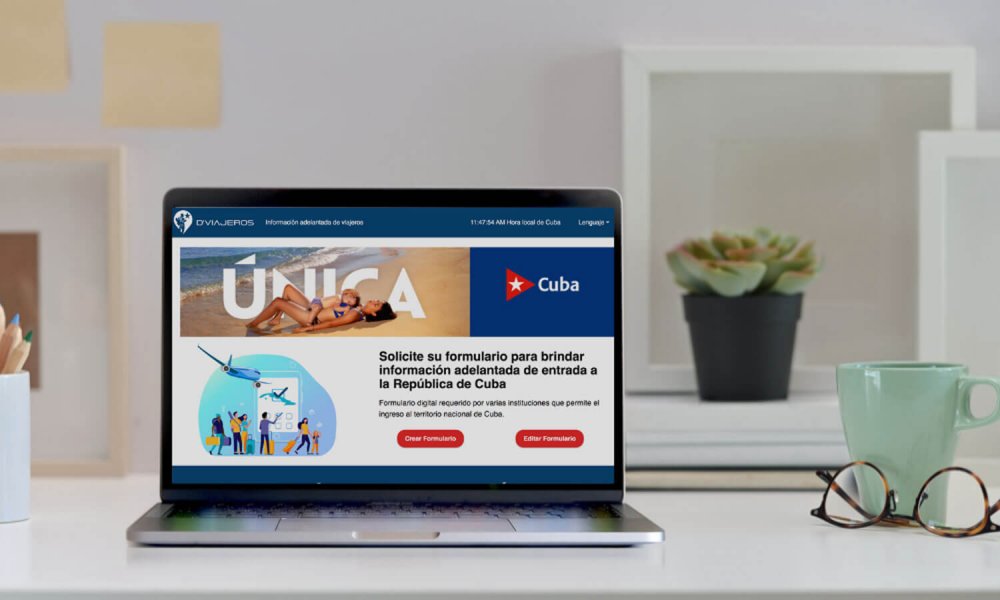
Getting ready to travel to Cuba? Make sure you follow our steps to complete the D’Viajeros travel form before you travel. The form must be completed and shown at the airport before and after travelling to the island and requires passengers to input data such as their passport information, travel plans, and customs declarations.
Filling D’Viajeros form is mandatory for each passenger, and although it can be a bit confusing, we’re hoping our easy guide will help you fill it in without issues!
Step 1: Go to this site https://dviajeros.mitrans.gob.cu/inicio
You can only fill in this form 48hrs prior to departure so don’t even try beforehand!
The first screen you’ll see looks like this:

Step 2: Select your language
If you don’t speak Spanish then click Top Right Hand ‘Lenguaje’ tab for the dropdown language menu and choose Ingles/ English which will instantly translate the page for you!
Step 3: Click on ‘Form Request’ to start the process
A form will appear on the page.
Step 4: Fill in your personal data
Please note mandatory fields in RED. When you’ve done this, click the button that says ‘NEXT’.

Step 5: Migratory information
Fill in ‘Flight information’ and ‘Arrival Airport’. If you’re arriving in Havana, it’s Aeropuerto Internacional Jose Marti (HAV)
Step 6: Sanitary Information
Fill in information ‘Sanitary Information’ including ‘Vaccination information’. If you haven’t been vaccinated you should have a negative PCR test (although currently not mandatory for entry to Cuba. Please refer to UK GOV’s Cuba entry requirements here )
Step 7: Select your vaccination type from the drop-down menu

Step 8: Choose where you’re going
Make it easy for yourself and just select La Habana 🙂 When it comes to Municipalities , choose Habana Vieja or Plaza de la Revolucion for accommodation in the Vedado area.

Step 9: Choose where you’re staying
- If you’re staying in a Casa Particular choose House or room for rent and add the name and address we have given you for your first night’s stay.
- If you’re staying in a Hotel choose Hotel , then select a hotel from the drop-down menu
Step 10: Customs Information
There is no requirement to declare what you are bringing unless you are bringing more than $5,000 in cash or miscellaneous non-personal items worth more than $1,000.
Please make sure you tick the boxes asking whether you have any unaccompanied baggage AND if you have anything to declare to Customs.
Step 11: Sworn declaration
Nothing confusing here….
Step 12: The PDF
Make sure you view PDF and print it or save it.
With other QR codes, you get sent a copy via email, but NOT so with Cuba! This is why it’s critical that you’ve saved a copy. I print a version AND put a copy in my phone wallet just in case….
…and that’s it! You’re one step closer to your dream Cuban adventure!

Need help planning your Cuba holiday?
With over 20 years of experience organising sustainable tours in Cuba, at Cubania we have your back. From Cuba cycling tours to family or LGBTQI-friendly Cuba tours, we’ve got something for everyone!
Related stories From Cuba
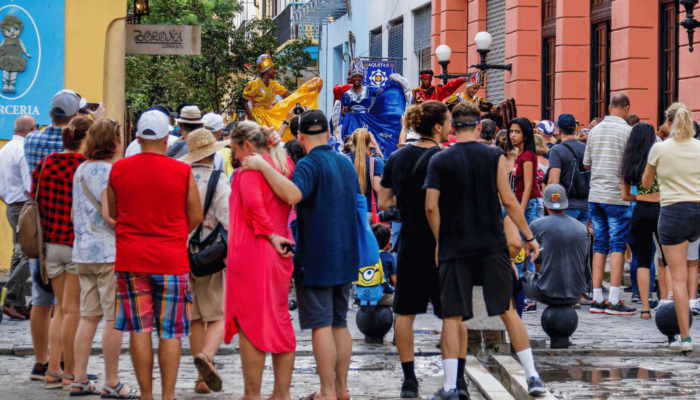
Is Cuba safe?
October 12, 2023, written by Cubania Team
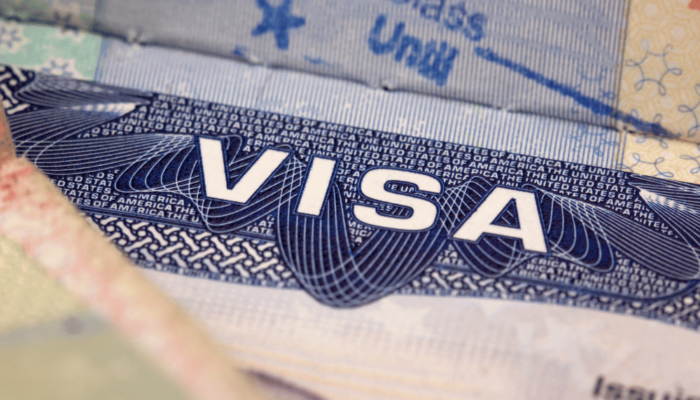
Can Europeans travel to the US if you have been to Cuba?
September 8, 2023, written by Lucy Davies
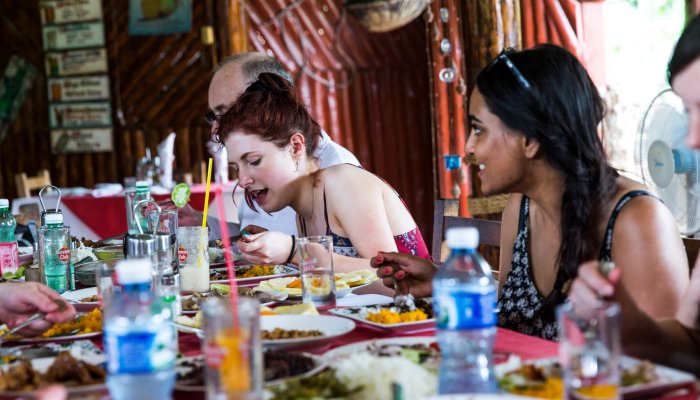
A Guide to Eating in Cuba
February 23, 2023, written by Serafina Vick
Free Destination guide

Cuba is open! Book your trip now!
Free cuba travel guide.
Subscribe to our newsletter to get useful information and up-to-date insights on the island. Get tips on:
✔ Local language ✔ Cycling & Trekking ✔ Money & Costs ✔ Transport ✔ Hotel & Facilities
Business Channel B2C B2B Guides Journalists
Downloaded Destination Guide Bike Cuba Cubania Classic Cycle Cuba Insight Experience Havana Cuban Active Adventure Western Skyline Ride Cuba Completa Hip Havana Salsa Cubana Road Cycling Western & Central Cuba Bikepacking Cuba Kayaking in Cuba Run And Cycle In Cuba Havana Marathon Queer Cuba Havana Cycling Tour Western Cuba Trek Family Active Adventure Central Cuba Bike Ride Cuban Discovery Family Beach and Culture Central Cuba Trek Western And Central Cuba Trek Road Cycling Cuba Vuelta de Cuba
Consent I am happy for Cubania Travel to contact me occasionally via email
Click here to download Haga clic aquí para descargar
View Privacy Policy
We’re sorry, this site is currently experiencing technical difficulties. Please try again in a few moments. Exception: request blocked
Sign in with your email and password
D’viajeros means ‘for travelers’ in spanish, how to fill out the cuba entry form on the d’viajeros website before travel.
The online D’Viajeros form is mandatory for all persons coming to Cuba. The form can only be submitted within 48 hours of arrival to Cuba. Cuba Explorer explains the step-by-step process to complete the form with minimum frustration. Our instructions are tailored to US citizens and residents visiting Cuba as short-term guests and students. We assume you have nothing to declare; you are not bringing illegal items or more than $5,000 USD. Take a moment to review the steps before you fill out the online D’Viajeros form. We promise it will save you time and anxiety. The QR Code provided at the end of the process is required by US airlines and Cuban immigration. Link to D’Viajeros at the end of this page.
Choose language, then click Form Request

Fill out sections in red. Your name should match name on your passport.

Just the sections in red.

Just two sections in red. Cuba does not require Covid information.

Fill out three sections in red.

Just two items in red.

Next step critical to get your QR Code.

Print this PDF. Put with your passport. Save to your phone. QR Code required for US airlines and entry into Cuba.

With this PDF QR Code document in hand, together with your passport, and Cuban Tourist Visa, you are ready to visit Cuba.
Remember , you can only complete the D’Viajeros online entry form 48 hours before arriving in Cuba. Attempting to do so earlier will result in losing the details you input. The QR Code provided at the end of the process is required by US airlines and Cuban immigration.
Old Havana and the sea review
My wife detailed our impressions here: https://beckygiovagnoni.wordpress.com/2019/08/13/heres-to-ten-years/Our guide Atila was the best. We had no problems whatsoever.
Christopher Giovagnoni Colorado Springs, Colorado
Eston Schwartz in Cuba review
People were so friendly and giving. We were walking on the street in Havana and people would come up to talk to us and never ask for anything ... read more
Eston Schwartz Columbia, Missouri
Manuel Rivero in Cuba review
Cuba is a beautiful country. Its natural beauty is varied and often breathtaking. The music, art, and architecture are as beautiful and diverse as its natural gifts. We ... read more
Jennifer Vasile Forest Hills, New York
Havana extravaganza review
Cuba is a wonderful place to visit but still needs investment to develop its tourist base. People are very nice, polite and helpful. People who work in the ... read more
Agata Woldan-Lopez Woodside, New York
Marvin Murry in Cuba review
The people are very intimate with their music. It seems everywhere we went we saw singers, dancers, musicians or all three. We loved the diversity of the people ... read more
Marvin Murry Dallas, Texas
Weekend in Havana review
We enjoyed getting to know the Cuban people and the culture. We were sad that so many beautiful buildings are crumbling and in disrepair. We loved our trip ... read more
Cheryl Cagle Marietta, Georgia
Moh Rahimi in Cuba review
We really enjoyed our trip to Cuba. people are very nice respectful and friendly, Cuba is very safe, even safer than the US. We walk late at night ... read more
Mohammad Rahimi Brentwood, Tennessee
Great people, great history and wonderful learning experience. Loved each of the scheduled activities, and our very knowledgeable tour guides, as well as the visit with Professor Núñ... read more
Ruth McCoy Missouri City, Texas
Very nice people. Our Cuban tour guide Claudia was excellent, friendly and professional. The tour was without problems.
John Alderman, Iii Charleston, West Virginia
Western Cuba culture review
Cuba is an exciting country with a rich and colorful history. I really enjoyed learning about the intricate culture and history. The Cuban people are friendly, helpful and ... read more
Kirsten Jensen Vienna, Virginia
Cuba discovery review
The people are so friendly, hard-working, interesting, and welcoming. Cuba is a mix of old and new, a beautiful place and so much history! Liked learning about the ... read more
Cynthia Rung Il, Illinois
Visiting Cuba was everything I hoped for and more. The people are warm, the country is splendid, and the culture full of vibrancy and pulsating energy. Our tour ... read more
Kimberlee Sherbrooke Baltimore, Maryland
After four days in Havana, I found the city to be beautiful and historically significant. All the Cubans with whom I came in contact were kind and generous. ... read more
Lauren Fischel Fairfield, Connecticut
The people were so friendly and helpful. I loved all of the gardens and architecture.
Paula Rosenbaum Pontiac, Illinois
Paul Kellett in Cuba review
The Cuban people are very helpful kind and sincere. Great prices on food and drinks – both were awesome. The experience was very laid back – no rushing from A ... read more
Paul Kellett Gadsden, Alabama
The Cuban people are hard-working and kind. It is a country with a very rich history. I loved our tour guide Otto Sanchez. He was excellent and able ... read more
Ruth Anne McGinley Mechanicsburg, Pennsylvania
Illinois Legislators & Friends review
I found the experience quite enlightening. I enjoyed learning about Cuban culture and people. I have a greater appreciation and respect for Cuba as a result of our ... read more
Paul Williams Chicago, Illinois
This was one of the most memorable cultural and educational exchanges I've experienced during my adult life. Our travel to Cuba was an unforgettable educational experience. We had ... read more
Lets Go to Cuba review
Caring, imaginative, loving people and nation. Definitely struggling, but strongly bonded as a community. Enjoyed the Muraleandro community project visit, suggested by our guide, Laura. She helped us ... read more
Alejandra Beatty Arvada, Colorado
We loved this trip. Everyone was friendly, the food everywhere we went was excellent, and the accommodations were terrific. Most special: the food, the people, our tour guide ... read more
Beth Neiderman Ventnor, New Jersey
Cuba is beautiful. The locals are warm and welcoming. So much history and so many traditions were shared with us during this trip. The tour was packed with ... read more
Ana Theresa Barr Chula Vista, California
I had a very positive reaction to the people despite their many limitations. We enjoy the intimate relationship with our guide and driver. The interaction was beyond my ... read more
Marcia Hajduk Harrisburg, Pennsylvania
I was surprised at the resilience and resourcefulness of the Cuban people, who have been cut off from purchasing from the U.S. and its allies. The people ... read more
Sandra Buckhoy Broadview, Illinois
Havana, Cuba was amazing. The people were all so friendly, the food was amazing, and I really enjoyed the music and dancing. Mojitos, mojitos, mojitos – I love them, ... read more
Katherine Phillips New York, New York
Rachel Mullen in Cuba review
We loved every minute of our time in Cuba. Rachel, our tour guide, was absolutely perfect. She answered all of my pestering questions and was spot-on with ... read more
Daniel Mullen Nashville, Tennessee
It was a very nice trip, lots to do, learned a lot about the culture and the people. The cooking and mojito lessons were tops. The city tour ... read more
Rita Mayfield Waukegan, Illinois
Sharon Macias in Havana review
I was very impressed with the people, the culture, and the spirit of the people. I can see how they struggle for things we take for granted, wi-fi, ... read more
Sharon Macias Palm Desert, California
Matadial Manjushree in Havana review
Cuba was a phenomenal visit. Out tour guide was excellent and very knowledgeable about Cuba and the world. Pavel truly made our trip very enjoyable. I wish I ... read more
Manjushree Matadial West Orange, New Jersey
It was a wonderful experience! The people were friendly and the food was delicious! I saw many interesting sites. I would recommend anyone to take this tour.
Karma Stark Mantua, New Jersey
Cuba's hidden gems review
The trip was wonderful. The people were so friendly. I loved the antique cars. I would have liked more night spots!
Johnny Moore Birmingham, Alabama
Dream. Explore. Discover. Cuba with Angela Rose review
I loved Cuba, its people, and its culture. A gorgeous island with friendly people and great food! I enjoyed speaking with a Cuban real estate agent, and the ... read more
Angela Rose Atlanta, Georgia
Jet Royal Group in Cuba review
Not my first visit to Cuba as I was the group leader. Every time the people and culture are AWESOME! We received ongoing professional service from our tour ... read more
Dolores Roxan Collins Upper Marlboro, Maryland
I plan to return. I enjoyed the tour thoroughly. The Cuban people are ultra-friendly. Every scheduled activity was exciting. Our guide Atila was nice and knowledgeable.
Roy Fox Memphis, Tennessee
I was worried before travel that Cuba amenities would be sub-par. Instead, the hotel, restaurants, pool, and so on were all of an excellent standard. I loved Cuba! ... read more
June McCarthy Roswell, Georgia
I love the people. They were gracious, kind, and beautiful. I loved talking with the professor and learning about the history of the music. Our guide Geldrys ... read more
Deborah Parker Powell Milwaukee, Wisconsin
Wild Cuba adventure review
Very interesting. I now have a better understanding of their history and culture, and can contrast the parts that are better than the US, and parts where the ... read more
Alan Hickox Aberdeen, Maryland
Cuba is beautiful and its people are friendly and helpful. It’s nice to be someplace that hasn’t been overrun by commercial tourism (yet). I learned so ... read more
Stella Gevarguize Yonkers, New York
Very interesting. I did a lot of research so it was close to what I expected. Enjoyed the food, coffee, and general sightseeing. No problems with this trip.
Jason Harding Macomb, Michigan
Rene Houghland in Cuba review
I can't get Cuba out of my mind. Gretel was the perfect hostess and guide. We learned more than I ever imagined. Can't wait to go back! I ... read more
Rene Houghland Nashville, Tennessee
People are friendly. Our designated stops were rich in history. Our tour guide Norberto was very knowledgeable and personable. Tour met my expectations.
Linda Kisberg-Katz Frisco, Texas
I loved it so much! No complications. Agenda perfect.
Jeffrey Allen Smith Sammamish, Washington
Cubans are resilient, beautiful, friendly. Loved the variety; getting to see and meet some locals, the different restaurants for the flavors of Cuba; the comfortable hotel; and ... read more
Bandele Adeyemi-Znidarcic Mamaroneck, New York
I love Cuba and was so happy to return for a second trip. I took my sixteen-year-old grandson, and he had a wonderful time as well. The people ... read more
Marjorie Forman New York, New York
Without exception, everyone we met in Cuba, both on tour and our own, were warm, welcoming, engaging, and fun to be with: in a word, delightful. My wife ... read more
William West Ventura, California
Beautiful place with lots of interesting venues, and people who are friendly and welcoming. I loved that we ventured out of the city center to see places we ... read more
Susan Moguel West Palm Beach, Florida
Wonderful, warm people! I'll remember our walking tour of Old Havana and our guide Rachel forever.
David Prensky Yardley, Pennsylvania
Christal Badour in Cuba review
We loved our trip to Cuba! Everything was very well-organized, our guide and driver were fantastic. All of the people we met were extremely friendly and we loved ... read more
Christal Badour Hirsch Lexington, Kentucky
I was very surprised by the level of satisfaction the Cuban people have for the government and their situation which was contrary to what I supposed. Everyone was ... read more
Danielle Breaud New Orleans, Louisiana
Growing up in America and the story of the Cuban Missile Crisis and Fidel Castro and flying over Cuba to Grand Cayman Island, I remember looking out the ... read more
Pete Mannion New York, New York
Cuba is fascinating, intriguing, alluring, spectacular, beautiful, mysterious and complicated all wrapped up together. The people of Cuba were so warm and welcoming. The architecture and American cars ... read more
John Mason Frisco, Colorado
- Search Search Search …
- Search Search …

How to Fill in the D’Viajeros Form for Cuba
In the 48 hours before you travel to Cuba you’ll need to complete the D’Viajeros Form, an online form, issued by the Cuban Government. It’s a relatively simple form, but it’s a requirement for traveling to Cuba. It includes personal information, and customs information and must be completed by all travelers, regardless of nationalities (including returning Cubans). Our guide covers all the information you need, the sections to complete, and what health information you need to provide. Here’s our guide on how to fill in the D’Viajeros Form for Cuba.
THIS POST MAY CONTAIN COMPENSATED AND AFFILIATE LINKS. MORE INFORMATION IN OUR DISCLAIMER
The D’Viajeros form is an online system that collects information about you, the traveler, for your trip to Cuba. It combines information for the immigration, health, and customs services of the Government of Cuba. This form, “the travelers” in English is required for ALL travelers, regardless of your nationality, immigration status, or mode of travel. You need to complete the D’Viajeros form if you’re flying to Cuba or if you’re arriving at one of Cuba’s Ports or Marinas.
You must have the form completed BEFORE you arrive at the airport as it will be checked by your airline. Some of the fields are mandatory, I have detailed where they are. As ever when traveling, I recommend you only complete mandatory fields – APART from the email address on the Personal Information Page, definitely include this.
What is the D’Viajeros Form?
Before 2023 there were separate forms that needed to be completed when traveling to Cuba. Some of these were online and some were paper forms. Just like you get in any other country when you arrive.
The D’Viajeros Form for Cuba combines the previously used
- Boarding and Disembarkation Form/Card
- The Customs Declaration Form
- The Travelers Health Affidavit
You can access the D’Viajeros form here .
Who has to Complete the D’Viajeros Form?
Everyone has to complete a D’Viajeros Form. That’s every member of the family, including children. Each individual traveler. And yes, Cubans need to complete it too.
What you need to complete the D’Viajeros Form
You will need the following pieces of information for each traveling passenger to complete the D’Viajeros Form successfully.
- (Full) Name (although middle names are not mandatory, I recommend using them if they are on a passport or travel document)
- Country of Birth
- Issuing Country of Passport or Travel Document
- Passport Number
- Country of Permanent Residence
When do you need to complete the D’Viajeros Form
You can only complete the D’Viajeros Form in the 48 hours before you travel. If you visit the D’Viajeros site before this, then your travel dates will not be available in the calendar.
Where to find the D’Viajeros Form
The D’Viajeros form is available online at https://www.dviajeros.mitrans.gob.cu/
Step by Step Guide to Completing the D’Viajeros Form
First go to the D’Viajeros Webste. You’ll find it here.
Selecting the Language to Complete the D’Viajeros Form in
The D’Viajeros form is available in Spanish, English, French, Russian, Italian, and German. You can change the language, by clicking the logo at the top right-hand corner of the webpage.
If you need a language other than that, I’d recommend using the Chrome web browser and selecting to translate automatically.

Click FORM REQUEST. This will begin your process of completing a new D’Viajeros form.
Completing the D’Viajeros Form Page 1: Personal Information
On this page, you’ll need to enter Full Name, Date of Birth, Gender, Country where the traveler was born, Passport Issuing Country, Passport Number, and Country of Permanent Residence.
The fields that are MANDATORY will be ringed in RED. When you complete them they will go green. If a field has a grey ring around it, then it is not mandatory.
I also recommend including your email address on this page. This means that at the end of the process, you will be emailed a copy of your D’Viajeros form, as well as the code that you will need if you have to edit your form at a later date.
If you miss one of the mandatory fields, then you will not be able to progress to the next page and you’ll get an error message.

When you have completed all these fields, then Click NEXT. If you make a mistake you can always click RETURN which will take you to the previous page.
Completing the D’Viajeros Form Page 2: Migratory Information
On this page, you’ll be completing the following fields (and note again, if they are RED then they are mandatory, and once you have completed them the ring around the field goes green)
- Arrival Date (day in numbers, month year)
- Flight Number
- Airline Name
- Airport of Entry to Cuba
- Traveler’s Country of Origin (where did you take your flight to Cuba from)
- Travel Reason

You must type in your Flight Number
Select your airline from a drop-down list
Select your arrival airport from a drop-down list – they start with the name of the airport and include the airport code.
A.I. Jose Marti (HAV) is Havana International Airport
Select your travel reason from a drop-down list that includes
- Transhipment
Note these reasons are from the Cuban Government. They are NOTHING to do with what you, if you’re an American, might have had to detail for the US Government.
When you have completed this page, then click NEXT.
Completing the D’Viajeros Form Page 3: Sanitary Information
This information was previously known as a health declaration.

You’ll need to complete the type of accommodation that you’re staying in (Home, Hotel, or House for Rent). This is a drop-down list to select from. If you are staying in a Casa Particular (you should, they’re fabulous, you can read my guide here ), then select House for Rent.
If you are staying in a hotel you will select the name of it from a drop-down list.
And then the address of where you are staying. If you are traveling around on your Cuba Itinerary , then put the address of the first night you are staying.
The only other mandatory information required on this page is the province in which you are staying for that first night. This is a drop-down list.
The other fields were used for travel during the pandemic. My guess is that they are left in there in case something similar happens in the future. But you do not need to complete them.
Completing the D’Viajeros Form Page 4: Customs Information
There are two required fields on this page. They are marked with an asterisk (*). It’s the first question and the last one.
Unaccompanied baggage? (Yes or No)
Do you have something to declare at Customs? (Yes or No)

There is no requirement to declare what you’re bringing unless you are bringing
- More than US$5,000 in cash
- Miscellaneous non-personal items worth more than US$1,000
Completing the D’Viajeros Form Page 5: Sworn Declaration
On the Sworn Declaration page simply check the box indicating that you agree with all the content that you’ve typed in and that it is complete and true.

Then type in the code that you see, this is to check that you’re not a robot!
Completing the D’Viajeros Form Page 5: The PDF and QR code
This page is the final page. You can click View PDF , which will open in a new window and which will display all the information that you’ve inputted, as well as a QR code.
Printed on this screen is a code that you can use to return to this page and edit the form if you need to.

Save this PDF to your computer or phone.
You can also click EDIT, which will take you back to the first page of the form (the personal information page).
Frequently Asked Questions about Completing the Cuban D’Viajeros Form
Here are the main questions that travelers have about completing the D’Viajeros form for visiting Cuba.
Do I need anything else to travel to Cuba?
Yes. You will need a Tourist Card to Travel to Cuba. My guide on Cuban Tourist Cards is here. I recommend also that, if you plan on using the Internet in Cuba, you buy and download a VPN before leaving home. This code will give you 3 months for free on the Best VPN for Cuba. I’ve included these details and other items in my Cuba Travel Checklist.
Can I change the language on the D’Viajeros Form website
Yes. You can change the language on the D’Viajeros form. Simply click on the language button at the top right of the screen.
How long does the D’Viajeros Form take to complete
It should take around 10 minutes per passenger to fill in the D’Viajeros form.
Do Cuban Citizens Need to Complete the D’Viajeros Form?
Yes. All travelers are required to complete the form.
What happens if I forget to complete the D’Viajeros form?
You will not be allowed to board the plane. If you don’t have a copy of the form, then you’ll have to download it, or complete it and then download the PDF before boarding your flight to Cuba.
Is it one D’Viajeros Form per family? Or one D’Viajeros Form per person?
You need to complete one D’Viajeros form per traveler. If you are traveling with children then you will need to complete one form for each of them.
I am American, can I select Tourism on the D’Viajeros Form as the reason for visiting?
You can select what you want. This information is for the Cuban Government. It is not for the American Government.
My arrival date is not on the D’Viajeros Form calendar help!
You can only complete the D’Viajeros form 48 hours before travel. If you try to complete it before this time, then you will not be able to select your departure date. You can see what this looks like below.

Do I need to print the D’Viajeros form?
You do not need to print the D’Viajeros form, but you will need a copy of it available, either digitally or in printed form for your departure airport and also at arrivals in Cuba.
If I hit the PREVIOUS or RETURN button does the D’Viajeros Form save my content?
Yes. If you need to return to a previous page on the D’Viajeros form your content is saved.
ESSENTIAL TIPS FOR EXPLORING CUBA INDEPENDENTLY
These are the resources and booking sites that we use when traveling to Cuba.
Get a Cuba Travel and Medical Insurance Quote from Visitors Coverage here – Alternatively, Civitatis Insurance is a great option for the required insurance for Cuba. You will need a Cuba Tourist Card to enter Cuba – some airlines include these, if yours doesn’t, buy one from EasyTouristCard – now valid for 90 days. Book your Viazul Bus tickets here Pre-book and prepay shared & private shuttles here Book the best FREE Walking Tours in Cuba Reserve attractions, day trips, and activities in Cuba here Get online in Cuba EASILY with a Cuba eSIM – read about Cuba ESIMS here , or buy a Cuba eSIM here .
Download and install a VPN BEFORE you travel to Cuba > discount coupon here Book Accommodation in Cuba’s Casa Particular here
Final Words on How to Fill in the D’Viajeros Form for Cuba
The creation of the D’Viajeros form means that there’s no requirement to complete three individual paper forms before traveling to Cuba. It streamlines the process and removes paperwork. The form is easy to complete, provided you have all the information to hand before completing it.
Cuba’s Best is a participant in the Amazon Services LLC Associates Program, an affiliate advertising program designed to provide a means for sites to earn advertising fees by advertising and linking to amazon.com, amazon.co.uk, amazon.ca. Amazon and the Amazon logo are trademarks of Amazon.com, Inc. or its affiliates .
Sarah Carter
Leave a comment cancel reply.
Your email address will not be published. Required fields are marked *
Save my name, email, and website in this browser for the next time I comment.
Privacy Overview

Cuba Entry Requirements: Complete Guide for Travelers [2024]
For most travelers, even travelers from the United States , entry to Cuba is as simple as landing on the island and passing through immigration. However, it’s important to be aware of a few important entry requirements to Cuba before planning your trip to Cuba – you’ll need to prepare for them before arriving!
We travel to and from Cuba frequently and have helped thousands of travelers visit the island over the past few years. Keep reading for all the information you need about current Cuba entry requirements you’ll need to be aware of for your visit to the island.
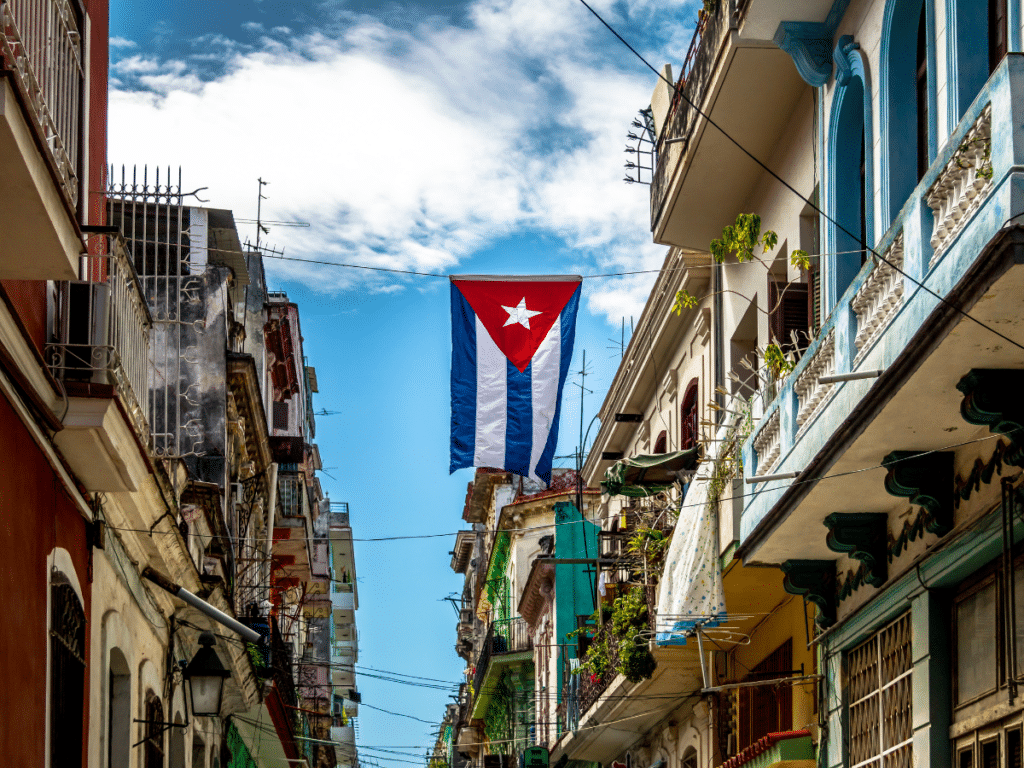
This post contains affiliate links that may reward me monetarily or otherwise when you use them to make qualifying purchases – at no cost to you. As an Amazon Associate, I earn from qualifying purchases. For more information, please read our disclosure policy .
What Are Cuba’s Entry Requirements?
In order to enter Cuba, all travelers must meet the following requirements. While most of these requirements don’t require too much preparation or forethought, it’s important to be aware of these entry requirements for Cuba and prepare for them.
- A Valid Passport
- A Cuban Tourist Visa (also known as a Cuban Tourist Card )
- Comprehensive Travel Insurance
- A Completed D’Viajeros Travel Form
There are certain exceptions to this list for Cuban-born and Cuban-resident travelers. Travelers who were born in Cuba or who are Cuban permanent residents do not need a tourist visa. Cuban-resident travelers don’t need comprehensive travel insurance, though Cuban-born travelers may.
Health Requirements for Entry to Cuba
Cuba no longer has outstanding entry requirements related to the pandemic and no longer requires any testing or vaccination before arriving in the country. When you complete the D’Viajeros Travel Form required before you’re arrival, you’ll note that the form asks about vaccination status. However, vaccination is not required to enter the country.
Cuba Travel 101
- Currency in Cuba: A Local’s Guide for Travelers
- How to Get Wifi in Cuba [Updated!]
- Is Cuba Safe? Updated Cuba Safety Guide
- Ultimate Cuba Travel Guide – A Local’s Advice for Travelers
Cuba Entry Requirements
The current entry requirements for Cuba are straightforward. However, there are steps that you must take to prepare in advance. With this in mind, it’s extremely important to be aware of all the details of the Cuba entry requirements before touching down on the island.
Let’s look at the entry requirements for Cuba in more detail.
1. A Valid Passport
Having a valid passport is the most straightforward requirement for entering Cuba. Keep in mind that your passport must have at least six months of validity when you arrive on the island. If your passport has less than six months of validity upon your arrival, you may be denied entry to the country.
2. A Cuban Tourist Visa / Cuban Tourist Card
Everyone visiting Cuba who is not Cuban-born or a permanent resident of Cuba needs to present a Cuban tourist visa upon arrival in the country. Don’t worry – getting a Cuban tourist visa, which is also known as a Cuban tourist card , is a straightforward process that you even complete on the day of your arrival if you’re pinched for time.
Most travelers purchase their Cuban tourist visa at the airport prior to departing on their flight to Cuba. For travelers arriving on a flight from the United States, tourist cards cost between $50-100 and are pink, while travelers arriving on flights from most other countries will get a green tourist card that usually costs around $25-40.
If you have a bit more time and want to streamline the process, you can also use a service like EasyTouristVisa to order your Cuban tourist visa in advance. EasyTouristVisa will ship the Cuban tourist visa directly to your home prior to your departure to Cuba.
Make sure to check out our extensive guides should you need any further clarity on Cuban tourist visas and tourist cards:
- A Traveler’s Guide to Cuban Tourist Visas
- A Traveler’s Guide to Cuban Tourist Cards
Travelers from a select few African and Asian countries will need to apply for a Cuban tourist visa before arriving in the country – make sure to check with the Cuban embassy in your country before you travel if you are unsure about the rules of entry from your country of origin.
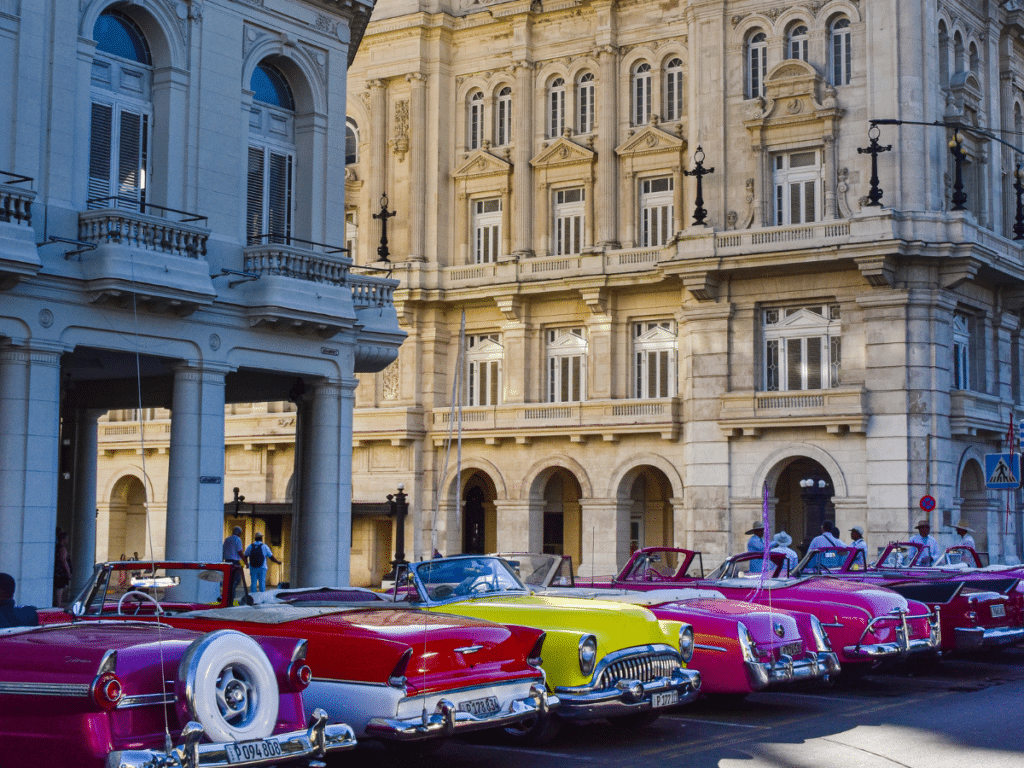
3. Comprehensive Travel Insurance
One of the most important Cuba entry requirements is comprehensive health insurance that would cover a traveler in the case of a health emergency during their stay in Cuba. This is the entry requirement for Cuba that requires the most forethought, as shopping for and purchasing a travel insurance policy valid in Cuba can be more challenging than you might think.
The vast majority of travel insurance companies do NOT cover travel to Cuba , meaning that even if you have a blanket travel insurance plan, it likely won’t cover you in Cuba. This is particularly true for travelers from the U.S. who are traveling to Cuba – even fewer companies cover U.S. travelers.
We always recommend traveling with Visitors Coverage (though this company doesn’t cover travelers from certain U.S. states) or Insubuy , which covers travelers from every U.S. state and most other countries.
You need to carry proof of comprehensive health insurance coverage when entering the country – make sure to check out our guide to travel insurance coverage for Cuba for more details.
Many times, proof of insurance coverage isn’t specifically requested by immigration authorities when they stamp your passport, but you must have it. If you don’t have proof of coverage, you may be made to purchase a plan at the airport – at the cost immigration officials see fit.
Read More: Ultimate Guide to Travel Insurance for Cuba
4. A Completed D’Viajeros Travel Form
In 2023, completion of the D’Viajeros Travel Form formally became a requirement for travelers entering Cuba. This straightforward online form can be completed up to 48 hours before your arrival in Cuba but is a requirement for travelers before arriving on the island.
The form usually takes less than ten minutes to complete and covers basic information like passport number, flight information, and information for customs.
Once the form is completed, save the PDF form it generates to present to immigration when you enter the country. You can print the form or save it in a digital wallet – either version is accepted.
Read More: A Traveler’s Guide to the D’Viajeros Travel Form for Cuba
Plan a Trip to Cuba
- 47+ Best Things To Do in Havana
- Ultimate Havana Travel Guide
- 12 Best Beaches in Cuba
Cuba Entry Requirements for U.S. Travelers
U.S. travelers don’t have any additional entry requirements for Cuba. Travelers from the United States need to have a valid passport, Cuban tourist visa, comprehensive travel insurance for Cuba, and a completed D’Viajeros Travel Form, just as any other travel would.
Remember, limitations on U.S. travelers in Cuba (like restrictions about staying in specific hotels or how you can spend your money on the island) come entirely from the government of the United States, not the government of Cuba. Once you’re on the island, you’re seen in the eyes of the Cuban government as you would be if you were from Canada, the United Kingdom, or any other foreign country.
Looking for some more clarity on travel to Cuba from the United States? We have plenty of guides about that! Check them out here:
- Can Americans Travel to Cuba?
- Support for the Cuban People Guide – Legal Travel Guide to Cuba

Carley Rojas Avila
Carley Rojas Avila is a bilingual travel writer, editor, content marketer, and the founder of the digital travel publications Home to Havana and Explorers Away. She is a serial expat and traveler, having visited 40+ countries and counting. Carley has written for publications like Travel + Leisure, MSN, Associated Press, Weather Channel, Wealth of Geeks, and more. Find her front row at a Bad Bunny concert, befriending street cats, and taste-testing every pizza in Havana.
Situation in Haiti April 5, 2024
U.s. citizens in haiti, update january 10, 2024, information for u.s. citizens in the middle east.
- Travel Advisories |
- Contact Us |
- MyTravelGov |
Find U.S. Embassies & Consulates
Travel.state.gov, congressional liaison, special issuance agency, u.s. passports, international travel, intercountry adoption, international parental child abduction, records and authentications, popular links, travel advisories, mytravelgov, stay connected, legal resources, legal information, info for u.s. law enforcement, replace or certify documents.
Before You Go
Learn About Your Destination
While Abroad
Emergencies
Share this page:
Travel Advisory January 5, 2024
Cuba - level 2: exercise increased caution.
Reissued with updates to crime information.
Exercise increased caution in Cuba due to crime .
Country Summary: Petty crime is a threat for tourists in Cuba. Also, violent crime, including armed robbery and homicide, sometimes occurs in Cuba.
Travel outside of the Havana area for U.S. Embassy employees requires a special notification process which may affect the Embassy’s ability to provide emergency assistance to U.S. citizens in Cuba.
Read the country information page for additional information on travel to Cuba.
If you decide to travel to Cuba:
- Be aware of your surroundings.
- Do not physically resist any robbery attempt.
- Do not display signs of wealth, such as wearing expensive watches or jewelry.
- Enroll in the Smart Traveler Enrollment Program (STEP) to receive Alerts and make it easier to locate you in an emergency.
U.S. citizens should always exercise caution when traveling abroad:
- Follow the Department of State on Facebook and Twitter .
- Review the Country Security Report for Cuba.
- Prepare a contingency plan for emergency situations. Review the Traveler’s Checklist .
Embassy Messages
View Alerts and Messages Archive
Quick Facts
Must have six months validity at the time of entry.
Two pages are required for entry/exit stamps.
Yes. Travel to Cuba for tourist activities remains prohibited by statute. See 31 C.F.R 515.560 and OFAC's Frequently Asked Questions .
None. See CDC for recommendations.
U.S. credit and debit cards do not work in Cuba. You should bring U.S. dollars or Euros to Cuba and exchange them for Cuban Pesos (CUP) at authorized banks, CADECA offices, airports or hotels. Travelers should confirm alternative payment options before traveling, as policies concerning the use of U.S. dollars in Cuba are subject to change. The Cuban government requires that travelers declare cash amounts over the equivalent of 5,000 USD.
When departing Cuba, we advise U.S. travelers to spend or exchange CUP to a foreign currency well before reaching airport security checkpoints. Currency exchange houses in the departure area at airports are currently closed and Cuban pesos are not internationally convertible outside of Cuba.. International airlines flying to the United States include departure fees and taxes in the price of airline tickets. U.S. dollars are not accepted for payment of any additional products purchased at the airport. Under Cuban law, travelers may export up to the equivalent of 5,000 USD out of the country. Anyone wishing to depart Cuba with more than this amount of cash must demonstrate evidence that the currency was acquired legitimately from a Cuban bank.
Embassies and Consulates
U.S. Embassy Calzada between L and M Streets, Vedado, Havana, Cuba Telephone: + (53) (7) 839-4100 (Monday- Friday 0830-1630, except holidays) Emergency after-hours telephone: + (53) (7) 839-4100 and dial 1 to speak with the emergency operator Fax: + (53) (7) 839-4247 Website: https:cu.usembassy.gov
Email: [email protected] (for concerns with U.S. citizens)
Destination Description
Learn about the U.S. relationship to countries around the world.
Entry, Exit and Visa Requirements
Travel to Cuba from or transiting through the United States by persons under U.S. jurisdiction (defined as [BE1] U.S. citizens located anywhere, and anyone located in the United States regardless of citizenship and nationality) , is regulated by the Office of Foreign Assets Control (OFAC) of the U.S. Department of the Treasury. All travelers falling under U.S. jurisdiction must comply with these regulations. Individuals seeking to travel to Cuba are not required to obtain licenses from OFAC if their travel is covered under the 12 travel categories authorized by a general OFAC license. If travel is not covered by a general license, you must seek OFAC authorization in the form of a specific license . Travelers who fail to comply with regulations may face penalties and criminal prosecution. For travel-specific questions, please see 31 C.F.R. 515.560 and OFAC’s Frequently Asked Questions .
Visit the Embassy of Cuba website for the most current visa information.
Cuba requires visitors to have non-U.S. medical insurance, which is usually included in airline ticket prices on flights originating in the United States. If you do not have insurance, it can be purchased upon arrival to Cuba at an airport kiosk. Asistur Medical Insurance is the official company that airlines contract. Please confirm your coverage with your airline prior to arrival in Cuba and seek additional medical insurance if needed.
Cuba does not recognize the U.S. citizenship of Cuban-born U.S. citizens who maintain residency status in Cuba. The Cuban government requires Cuban dual nationals to enter and depart Cuba using Cuban passports. Cuban-born U.S. citizens who maintain their residency status in Cuba will be treated as Cuban citizens and may be subject to Cuban restrictions and legal obligations.
Some HIV/AIDS entry restrictions exist for visitors to and foreign residents of Cuba. Foreign students on scholarships are required to test for HIV/AIDS. Please verify this information with the Embassy of Cuba before you travel.
Information about dual nationality , the prevention of international child abduction , and customs regulations can be found on our websites.
Cuban Requirements for Authorized Travelers: Attempts to enter or exit Cuba illegally, or to aid the irregular exit of Cuban nationals or other persons, are prohibited. Entering Cuban territory, territorial waters, or airspace without prior authorization from the Cuban government may result in arrest. Immigration violators are subject to prison terms ranging from four to thirty years.
Temporary Sojourn License: Most aircraft and maritime vessels on temporary sojourn to Cuba are no longer eligible for an Aircraft, Vessels, and Spacecraft (AVS) License Exception. See 15 C.F.R. § 740.15. If you are planning to enter Cuba with a U.S. or foreign-registered aircraft or maritime vessel on temporary sojourn, you must meet the criteria set forth in 15 C.F.R. § 740.15. Please see the U.S. Department of Commerce’s Bureau of Industry and Security website for additional information.
In addition, a vessel of the United States, as defined in 33 C.F.R. §107.200, may not enter Cuban territorial waters without advance permission from the U.S. Coast Guard. The U.S. Coast Guard provides permission information at (305) 415-6920.
Safety and Security
The security environment in Cuba is relatively stable and characterized by a strong military and police presence. Demonstrations are infrequent but can draw violent responses from government forces. Even demonstrations intended to be peaceful can turn confrontational without warning. Avoid demonstrations and maintain security awareness at all times. Demonstration Alerts are posted on the Embassy’s website . Review the Cuba Travel Advisory .
The Cuban government has detained U.S. citizens suspected of engaging in activities perceived to undermine state security. The Cuban government may detain individuals for activities that would not be considered criminal or offensive in the United States.
Crime: With the recent influx of travelers, there has been an increase in the number of property crimes. Crimes of opportunity, such as pick pocketing, purse snatchings, and car break-ins, are on the rise. Exercise vigilance everywhere . Do not display large amounts of cash. Do not leave your valuables unattended. Carry money in your front pockets, hold your purse and cellular phone securely and be mindful of purses or bags when dining out.
- Do not leave a beverage unattended or accept beverages from persons unknown to you.
- Locations such as Habana Vieja, Playas del Este, Varadero, and other attractions tend to have a higher incidence of property crime than other parts of Cuba.
- Be wary of misdirection schemes where someone attempts to gain your attention while another comes from behind to steal your purse, wallet, or other valuable items.
- If confronted by criminals, do not resist, try to remain calm, clearly display your hands and do not make any sudden moves that could be interpreted as resistance.
- Carry a cell phone with Cuban cellular service for emergency communications and travel in groups if possible.
- Be aware of your surroundings, especially at night or when traveling in an unfamiliar area.
- While in your car, place valuables out of sight or in a locked trunk. When unattended, avoid leaving items in the car, especially on the seat or in plain view.
- Only use marked taxis.
- Carry a copy of your passport and secure the original.
- Beware of scam artists, who may speak English and appear friendly.
- When exchanging currency, use the state-run offices known as CADECAs or official banks.
International Financial Scams: See the Department of State and the FBI pages for information.
Victims of Crime: We strongly urge U.S. citizen victims of sexual assault to contact the U.S. Embassy for assistance. Report crimes to the local police by dialing 106 and contact the U.S. Embassy at +53 7839-4100. Remember that local authorities are responsible for investigating and prosecuting crimes.
See our webpage on help for U.S. victims of crime overseas .
We can:
- help you find medical care
- assist you in reporting a crime to the police
- contact relatives or friends with your written consent
- provide general information regarding the victim’s role during the local investigation and following its conclusion
- provide a list of local attorneys
- provide information on victim’s compensation programs in the U.S.
- provide an emergency loan for repatriation to the United States and/or limited medical support in cases of destitution
- help you find accommodation and arrange flights home
- replace a stolen or lost passport
Domestic Violence: U.S. citizen victims of domestic violence are strongly encouraged to contact the Embassy for assistance.
Tourism: The tourism industry is unevenly regulated, and safety inspections for equipment and facilities do not commonly occur. Hazardous areas/activities are not always identified with appropriate signage, and staff may not be trained or certified either by the host government or by recognized authorities in the field. In the event of an injury, even basic medical treatment is typically available only in/near major cities. First responders are generally unable to access areas outside of major cities and to provide urgent medical treatment. U.S. citizens should maintain health insurance in Cuba. If stays exceed 30 days, [CM1] U.S. citizens should purchase medical insurance when they process their visa extensions.
Local Laws & Special Circumstances
Criminal Penalties: You are subject to local laws. If you violate local laws, even unknowingly, you may be expelled, arrested, or imprisoned. Individuals establishing a business or practicing a profession that requires additional permits or licensing should seek information from the competent local authorities, prior to practicing or operating a business.
Furthermore, some laws are also prosecutable in the United States, regardless of local law. For examples, see our website on crimes against minors abroad and the Department of Justice website.
Arrest Notification: If you are arrested or detained, ask police or prison officials to notify the U.S. Embassy immediately. See our webpage for further information.
Cuban penalties for the following are particularly severe:
- Possession, use, or trafficking of illegal drugs.
- Suspicion of assisting Cubans to leave the country illegally.
- Drivers involved in accidents that result in injury or death, regardless of fault.
- Importing weapons or ammunition.
- Photographing military or police installations or personnel, or harbor, rail, or airport facilities.
- Crimes against minors.
The Government of Cuba does not recognize the U.S. citizenship of Cuban-born U.S. citizens who maintain residency in Cuba and may not allow U.S. consular access to Cuban-American prisoners.
Telecommunications: Many U.S. mobile service carriers provide roaming services in Cuba. Your U.S. mobile phone will work in Cuba if your mobile phone is capable of roaming in Cuba and your mobile service provider has an international roaming agreement with ETECSA, Cuba's state-owned telecommunications provider. Currently AT&T, Sprint, Verizon, and T-Mobile have roaming agreements with ETECSA. Wi-Fi is often slow and unreliable. Be sure to confirm your carrier’s coverage before traveling.
SIM cards with a data plan can be purchased at Havana-José Martí International Airport (HAV) and local ETESCA telecommunications offices. To ensure family and friends can reach you in Cuba, check with your mobile provider about roaming options and cost or purchase a Cuban SIM card. See the FCC Travel FAQs for more information.
Cuba-related Travel Transactions: Only persons whose travel falls into the 12 OFAC approved travel categories or who have received a specific license from OFAC are authorized by the U.S. Department of the Treasury to travel to, from, or within Cuba. Direct financial transactions with certain entities and sub-entities under the control of, or acting for or on behalf of, the Cuban military, intelligence, or security services are also generally prohibited. For more information see the Department of State’s Cuba Restricted List . Additionally, lodging, paying for lodging, or making reservations on behalf of others to lodge, at certain accommodations in Cuba are prohibited; for a full list of such accommodations, see the Cuba Prohibited Accommodations List . For more information about licenses, visit OFAC’s Cuba Sanctions website . Additionally, lodging, paying for lodging, or making reservations on behalf of others to lodge, at certain accommodations in Cuba are prohibited; for a full list of such accommodations, see the Cuba Prohibited Accommodations List . For more information about licenses, visit OFAC’s Cuba Sanctions website .
Licenses for Remittances: In June 2022, OFAC published updated Cuba-related regulations . The new regulations eliminated a cap on remittances to family members in Cuba, and authorized remittances to non-family recipients as well. Certain Prohibited Officials of the Government of Cuba , Prohibited Members of the Cuban Communist Party , and the close relatives of these two groups, are not eligible to receive remittances. For information on remittance authorizations, see OFAC’s Cuba Sanctions website .
What May Be Brought Back From Cuba: Importation of Cuban merchandise for commercial purposes is restricted, with very limited exceptions. Certain imports of goods produced by independent Cuban entrepreneurs are authorized, as set forth on the Department of State’s Section 515.582 List (see 31 C.F.R 515.582). There are no limits on the import or export of informational materials. For more information related to imports, including merchandise entering the United States for personal use as accompanied baggage, please see the CBP Public Notice .
Cuban law requires foreigners to obtain authorization to remove souvenir paintings and sculptures out of Cuba. Most authorized points of sale, such as galleries and art studios, should be familiar with this process and should provide the proper documentation at the time of purchase. You can also apply for an export permit via the Cuban Fund of Cultural Assets. Travelers without a valid export permit may have their items confiscated at the port of departure. The U.S. Embassy cannot assist in these cases. For more information, please contact the embassy of Cuba .
Travelers may purchase alcohol and tobacco products while in Cuba for personal consumption in Cuba, but may not enter the United States with alcohol and/or tobacco products acquired in Cuba. Persons subject to United States jurisdiction may purchase or acquire Cuban-origin merchandise for personal consumption, including alcohol and tobacco products, while in a third country, but may not import such products into the United States. For a complete description of what this general license authorizes and the restrictions that apply, see 31 CFR § 515.585(c) and (d).
Storm Season: Tropical storms and hurricanes between May and November can produce heavy winds and rain. See our page on disaster and crisis preparedness for more information.
Faith-Based Travelers: See the following webpages for details:
- Faith-Based Travel Information
- International Religious Freedom Report – see country reports
- Human Rights Report – see country reports
- Best Practices for Volunteering Abroad
LGBTI Travelers: There are no legal restrictions on same-sex sexual relations or the organization of LGBTI events in Cuba, and on September 26, 2022 Cubans passed the referendum legalizing same sex marriage.
See our LGBTI Travel Information page and section 6 of our Human Rights report for further details.
Travelers Who Require Accessibility Assistance . Individuals with mobility issues are likely to find accessibility difficult . Few facilities or services are available, and information is limited. Most roads and sidewalks are poorly maintained.
Students: See our Students Abroad page and FBI travel tips .
Women Travelers: See our travel tips for Women Travelers .
Currency Restrictions: Be advised that policies concerning the use and convertibility of U.S. dollars in Cuba are subject to change. Obtaining U.S. dollar cash is nearly impossible through official channels. The Cuban Central Bank prohibits certain U.S. dollar cash transactions, including conversion of U.S. dollars to Cuban pesos, the use of U.S. dollars for cash payments, including in government-run establishments such as hotels and restaurants, and the purchase of pre-paid debit cards.. U.S.-issued credit and debit cards do not work in Cuba. Travelers should bring sufficient cash for the duration of their trip, and consider bringing multiple currencies, such as Euros.
For emergency services in Cuba, dial:
- 104 for an ambulance or contact the nearest hospital directly
- 105 for fire
- 106 for police
Ambulance services are
- not present throughout the country or are unreliable in most areas
- not equipped with state-of-the-art medical equipment
- not staffed with trained paramedics and often have little or no medical equipment
Injured or seriously ill travelers may prefer to take a taxi or private vehicle to the nearest major hospital rather than wait for an ambulance.
We do not pay medical bills. Be aware that U.S. Medicare/Medicaid does not apply overseas. Hospitals and doctors in Cuba do not accept U.S. health insurance. Most hospitals require payment up front before services are rendered.
Medical Insurance: Ensure your airline ticket includes health insurance. Cuba requires all U.S. airlines departing the United States to pay for health insurance for each passenger. The health insurance from airlines is valid for 30 days upon your arrival in Cuba. If you are planning to stay in Cuba for more than 30 days, you will need to extend your coverage before you can extend your visa. It is important to keep a record of your arrival into Cuba, such as your airline ticket, so that the Asistur agency can coordinate with the hospital on payment MEDEVAC flights from Cuba are difficult to arrange, with costs starting at $15,000 U.S. dollars. Visit the U.S. Centers for Disease Control and Prevention for more information on type of insurance you should consider before you travel overseas.
We strongly recommend supplemental insurance to cover medical evacuation.
Ensure you have all medicine you require for your time in Cuba. Medicine (prescription and over the counter) is not readily available in Cuba. Always carry your prescription medication in original packaging, along with your doctor’s prescription. Check with the embassy of Cuba to ensure the medication is legal in Cuba. Note: This site is in Spanish only.
Diarrheal illness is common among travelers, even in luxury accommodations. Travelers should wash their hands, drink bottled water, and avoid street and undercooked food.
The following diseases are prevalent:
- Dengue Fever
- Hepatitis-A
- Traveler’s diarrhea
- Chikungunya
- Typhoid
- Rabies
- Zika Virus
Visit the U.S. Centers for Disease Control and Prevention website for more information about Resources for Travelers regarding specific medical issues in Cuba .
Vaccinations: Be up to date on all vaccinations recommended by the U.S. Centers for Disease Control and Prevention.
Further health information:
- World Health Organization
- U.S. Centers for Disease Control and Prevention (CDC)
The U.S. Embassy maintains a list of doctors and hospitals here . We do not endorse or recommend any specific medical provider or clinic.
Pharmaceuticals: Even the most common over the counter medications are unavailable in Cuba. Other medication, medical equipment or supplies are also unavailable on the island. If you are able to find medicine, exercise caution when purchasing medication overseas. Counterfeit medication may prove to be ineffective, the wrong strength, or contain dangerous ingredients. Medication should be purchased in consultation with a medical professional and from reputable establishments.
U.S. Customs and Border Protection and the Food and Drug Administration are responsible for rules governing the transport of medication back to the United States. Medication purchased abroad must meet their requirements to be legally brought back into the United States. Medication should be for personal use and must be approved for usage in the United States. Please visit the U.S. Customs and Border Protection and the Food and Drug Administration websites for more information.
Water Quality: Tap water is not potable. Bottled water is often unavailable for purchase and you should be aware that some restaurants and hotels serve tap water unless bottled water is specifically requested. Be aware that ice for drinks may be made using tap water.
General Health Issues
- There are severe shortages of food, potable water, medicine, medical supplies, etc. throughout Cuba.
- Visit the U.S. Centers for Disease Control and Prevention website for more information about Resources for Travelers regarding specific issues in Cuba.
Air Quality: Air pollution is a problem in several major cities in Cuba. Consider the impact seasonal smog and heavy particulate pollution may have on you and consult your doctor before traveling if necessary. Visit AirNow Department of State for information on air quality at U.S. Embassies and Consulates.
Travel and Transportation
Road Conditions and Safety: Road accidents, many involving pedestrians and bicyclists, are Cuba’s leading cause of death. Cuban authorities may prohibit drivers from leaving the country until claims associated with an accident are settled. Drivers found responsible for accidents resulting in serious injury or death may receive long prison sentences. U.S. citizen drivers are often found at fault for accidents they are involved in.
Drive with extreme care. Major streets are generally well-maintained, but secondary streets are not. Major potholes and obstacles are common on all roads. After heavy rains in 2022, several bridges collapsed. Damaged bridges may not be well marked.
Outside of major cities, avoid driving at night as many roads are unlit. Emergency lights or signals are rare, making it virtually impossible to detect hazards after dark. Street signage is insufficient and confusing. Many Cuban cars are old, in poor condition, and lack reliable safety equipment. Heed caution throughout the country as there are rolling blackouts which may leave streets dark and without traffic lights, even in major cities.
The principal Cuban east-west highway is in good condition but extends only part of the way from Havana to the eastern end of the island. Hazards – including unfenced livestock and farm vehicles – are common.
When traveling by road, you should carry a printed map of the area, as electronic (smartphone) maps frequently fail due to connectivity issues.
Traffic Laws: Speed limits are sometimes posted and passengers in automobiles are required to wear seatbelts, if available. All motorcyclists are required to wear helmets. Traffic from major roads generally does not stop when entering roundabouts. Use care at intersections: stop signs are often hard to see.
Public Transportation:
Buses designated for tourist travel, both between and within cities, generally meet international standards.
The public bus and rail system in Cuba is under-resourced and in poor condition. Public buses used by Cubans, known as "guaguas," are crowded, unreliable, and are sometimes preyed upon by petty criminals. There is a heightened threat of pickpocketing on crowded buses and trains. Embassy personnel are advised not to use public transportation.
Avoid using informal taxis or hailing private vehicles for rides as they are unregulated, the vehicles are often in disrepair, and usually do not have normal vehicle safety equipment such as seat belts and air bags. “Cocos,” smaller, yellow ball-shaped “tuk-tuk” style vehicles, are not safe, and the Embassy advises its personnel not to use them.
Rental car agencies provide roadside assistance to their clients as a condition of rental contracts. Travelers should not permit unauthorized persons to drive their rental vehicles.
See our Road Safety page for more information.
Aviation Safety Oversight: As there is no direct commercial air service to the United States by carriers registered in Cuba, the U.S. Federal Aviation Administration (FAA) has not assessed the government of Cuba’s Civil Aviation Authority under its International Aviation Safety Assessment program (IASA) for compliance with International Civil Aviation Organization (ICAO) aviation safety standards. Further information may be found on the FAA’s IASA website. The U.S. Embassy in Havana prohibits U.S. government personnel from using any commercial airline for domestic flights within Cuba due to safety concerns. The Embassy does not authorize government personnel to travel via Cubana Airlines.
Maritime Travel: Mariners planning travel to Cuba should also check for U.S. maritime advisories and alerts . Information may also be posted to the U.S. Coast Guard homeport website , and the NGA broadcast warn ings .
For additional travel information
- Enroll in the Smart Traveler Enrollment Program (STEP) to receive security messages and make it easier to locate you in an emergency.
- Call us in Washington, D.C. at 1-888-407-4747 (toll-free in the United States and Canada) or 1-202-501-4444 (from all other countries) from 8:00 a.m. to 8:00 p.m., Eastern Standard Time, Monday through Friday (except U.S. federal holidays).
- See the State Department’s travel website for the Worldwide Caution and Travel Advisories .
- Follow us on Twitter and Facebook .
- See traveling safely abroad for useful travel tips.
Review information about International Parental Child Abduction in Cuba . For additional IPCA-related information, please see the International Child Abduction Prevention and Return Act (ICAPRA) report.
Travel Advisory Levels
Assistance for u.s. citizens, learn about your destination, enroll in step.

Subscribe to get up-to-date safety and security information and help us reach you in an emergency abroad.
Recommended Web Browsers: Microsoft Edge or Google Chrome.
Check passport expiration dates carefully for all travelers! Children’s passports are issued for 5 years, adult passports for 10 years.
Afghanistan
Antigua and Barbuda
Bonaire, Sint Eustatius, and Saba
Bosnia and Herzegovina
British Virgin Islands
Burkina Faso
Burma (Myanmar)
Cayman Islands
Central African Republic
Cote d Ivoire
Curaçao
Czech Republic
Democratic Republic of the Congo
Dominican Republic
El Salvador
Equatorial Guinea
Eswatini (Swaziland)
Falkland Islands
France (includes Monaco)
French Guiana
French Polynesia
French West Indies
Guadeloupe, Martinique, Saint Martin, and Saint Barthélemy (French West Indies)
Guinea-Bissau
Isle of Man
Israel, The West Bank and Gaza
Liechtenstein
Marshall Islands
Netherlands
New Caledonia
New Zealand
North Korea (Democratic People's Republic of Korea)
Papua New Guinea
Philippines
Republic of North Macedonia
Republic of the Congo
Saint Kitts and Nevis
Saint Lucia
Saint Vincent and the Grenadines
Sao Tome and Principe
Saudi Arabia
Sierra Leone
Sint Maarten
Solomon Islands
South Africa
South Korea
South Sudan
Switzerland
The Bahamas
Timor-Leste
Trinidad and Tobago
Turkmenistan
Turks and Caicos Islands
United Arab Emirates
United Kingdom
Vatican City (Holy See)
External Link
You are about to leave travel.state.gov for an external website that is not maintained by the U.S. Department of State.
Links to external websites are provided as a convenience and should not be construed as an endorsement by the U.S. Department of State of the views or products contained therein. If you wish to remain on travel.state.gov, click the "cancel" message.
You are about to visit:

Online form available for travelers arriving in Cuba
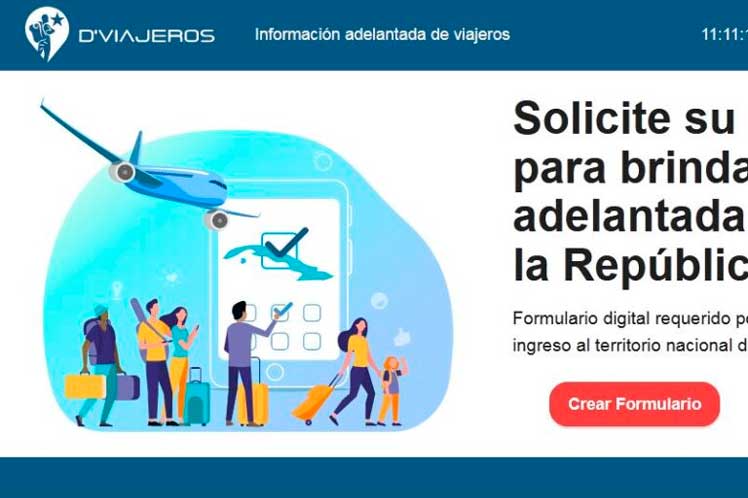
- November 19, 2021
The Ministry of Transport (Mitrans), together with other agencies, made this tool available on the website www.dviajeros.mitrans.gob.cu, with the aim of speeding up procedures at all entry points in Cuba, Granma newspaper reported.
From November 15 to December 31, the use of this electronic form will be enhanced to improve the platform, thus eliminating physical forms.
In order to fill out the document, travelers must have general, migratory, health and customs information and, once completed, it will be sent by e-mail in a PDF format with the QR code that must be shown, either on a device or printed, to the accredited personnel in Cuba, according to the press release.
Mitrans emphasized that it is mandatory for each passenger to truthfully complete the information provided to the Directorate of Identification, Immigration and Foreigners, the General Customs and the Ministry of Public Health.
On the other hand, Cuba suspended as from Monday the quarantine for visitors and the mandatory performance of the Reverse Transcriptase Polymerase Chain Reaction Test (PCR-RT).
Considering the decrease in positive cases, deaths and hospitalizations due to Covid-19 in the last few weeks, the Ministry of Public Health (Minsap) announced the modification of these and other measures established in the current international sanitary control.
jg/etc/mem/nmr
- # Cuba # forms # online
Cuba’s Parliament contributes to boost food production
- April 8, 2024
Former President Rafael Correa condemns President Noboa´s actions
Cuba recalls raúl roa garcía´s on his 117th birth anniversary, venezuela invites colombia to participate in presidential elections.
| Text SMS to 8100 with content PL Receive 4 mesages x 25 cup
© 2016-2021 Prensa Latina Latin American News Agency
Radio – Publications – Videos – News by the minute. All Rigts Reserved.
St. E No 454 , Vedado, Habana, Cuba. Phones: (+53) 7 838 3496, (+53) 7 838 3497, (+53) 7 838 3498, (+53) 7 838 3499 Prensa Latina © 2021 .
Web Site developed by IT Division Prensa Latina.


- Filling Out the Cuba D'Viajeros Travel Form
Cuban Travel Entry Requirements - D'Viajeros Advance Information of Travelers Form
Required as of January 2023
*** We are pleased to offer guidance to our valued Cuba Unbound guests. For your convenience, please consult the information below or call us with your reservation number. Regrettably, if you are not a guest of Cuba Unbound, we are unable to provide advice or assistance regarding your Cuba visa. We appreciate your understanding and encourage you to explore the resources available online.
In order to enter Cuba, you must complete the D'Viajeros Advance Information of Travelers Form . This can only be completed once you are within 48 hours from departure to Cuba. This is a simple form that asks some health questions as well as including the customs declaration form. You must fill this out before you leave home but not sooner than 48 hours prior to departure. Upon submission of the form you receive a QR code and an email that you present to immigration officers on your arrival in Cuba.
A Step by Step Guide to Filling out the D'Viajeros Travelers Form:
Step 1: Online Form Site
Go to this site to begin your form 48 hours or less from your date of departure.
Step 2: Change Language
In the upper right hand corner click on the small icon to select your language of choice. The form will automatically be in spanish if you do not change the language.
Step 3: Request Form
Once your form is in the language of your choice, begin by clicking " form request. " A form will pop up on your page for you to start filling in your information.
Step 4: Personal Data
Enter your personal data. The country name they use for the United States is "USA" so you can just type USA and choose that option when it asks about "Country Where the Person Was Born?" etc. Notice the required fields indicated in red before clicking "next."
Step 5: Migratiory and Flight Information
Here you will fill out your flight information and list which airport in Cuba you will be arriving at. Double check the airport code you'll be flying into on your air ticket. The Havana airport is A.I. Jose Marti (La Habana/HAV).
Purpose of visit: In this case you choose "Tourism." Even though that is not the reason as far as the US government is concerned, it is the reason as far as Cuba is concerned.
Step 6: Place of Accommodation and Sanitary Information
The first question is "Place of Accommodation."
If you choose "Hotel" then the next box asks the name of the hotel. If your itinerary shows that you are staying in a hotel on your first night in Cuba, you can choose "hotel" from the drop down menu and select the name of the hotel such as "Grand Aston La Habana." When you choose "Hotel" the boxes about "Municipality" and "Province" disappear.
House or Room for Rent: If your itinerary indicates that you are staying in a Casa Particular on the first night upon your arrival, chose the option "house or room for rent." If you have not received the exact address of your first night's accommodations, please reach out to one of our Adventure Consultants or, if you arranged this on your own, contact the host of your accommodation. If you have the address, list the street address. Then it asks for the Province, so you would choose "La Habana" if going to Havana, or "Holguin" if going to Holguin, etc. Then enter the "Municipality" meaning the city or neighborhood. In Havana, choose the correct neighborhood, but if you don't know, just enter "Plaza de la Revolucion". If going to the province of Holguin, choose the city of Holguin.
The next section on this page asks:
- Countries Visited in last 15 days - for most people you would simply choose "USA"
- Symptoms in the last 15 days - if you don't have any, just skip this. There is no choice for "none."
- Questionnaire - skip this also
The next section on this page is about COVID-19.
You will see a part about vaccination status on the left side of the screen, and PCR Test on the right side. Each has a check box. If you are vaccinated, check the box that says "Vaccination" and then put the type of vaccine you got and the date of your last vaccine. Then go to "NEXT" at the bottom of the form. Leave the box next to "Test PCR-RT (NAAT)" blank.
If you are not vaccinated against COVID-19 then do not check the box by either "Vaccination" or by "Test PCR-RT (NAAT)". Simply hit "NEXT" at the bottom of the page and it will take you to the next page.
Currently there is no COVID-19 vaccine or testing requirement for travel to Cuba.
Step 7: Customs Information
Select "No" for the question about "Unaccompanied Luggage."
Indicate the number of children under 10 traveling with you.
Leave the question about currency blank unless you are bringing more than $5000 in cash.
You do not need to declare what you are bringing into Cuba unless you are bringing any personal items that have a total value of $1,000 or more. Thus, just skip down the page to the box asking:
Do you have something to declare at customs? (*) and choose "No" unless you do have something to declare. Again, it would be rare for any of our travelers to have anything to declare.
Then hit the "NEXT" button.
Step 8: Declaration
This is your sworn declaration.
Step 9: Save and Print the PDF
You have completed the Cuba D'Viajeros travel form! Upon submitting your form you will see a PDF with a QR code and proof of completion. We highly recommend you print and save this document to show at customs when you arrive in Cuba.
Full List of Cuba Entry Requirements
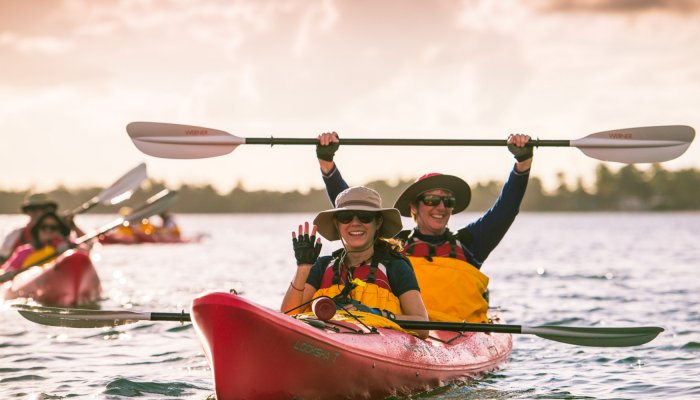
Cuba Unbound - Signature Tour
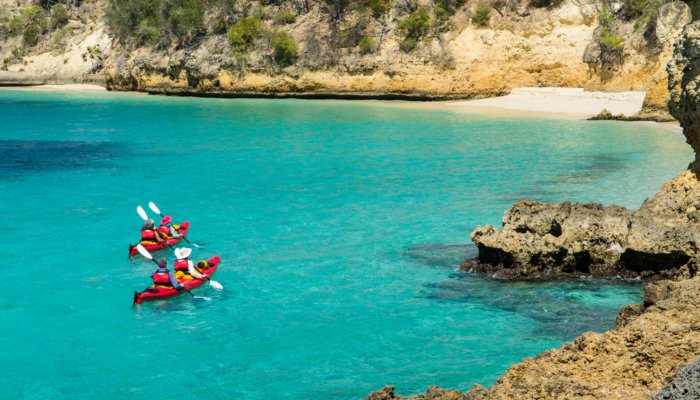
Kayaking in the Wake of Christopher Columbus
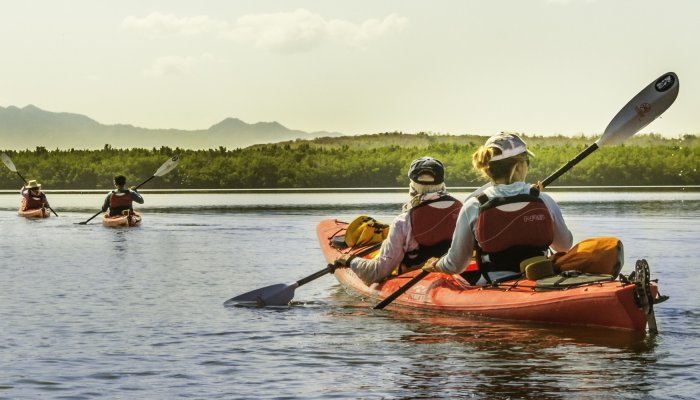
Cuba Multisport Tour
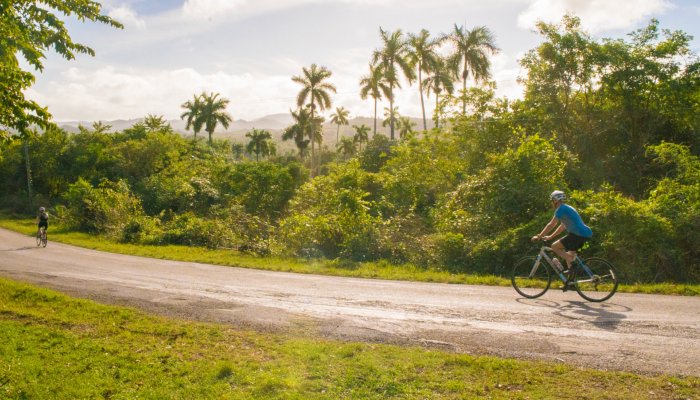
Central Cuba Bike Tour
Getting a visa to visit Cuba can be tricky, but it's worth it

Jan 18, 2024 • 4 min read
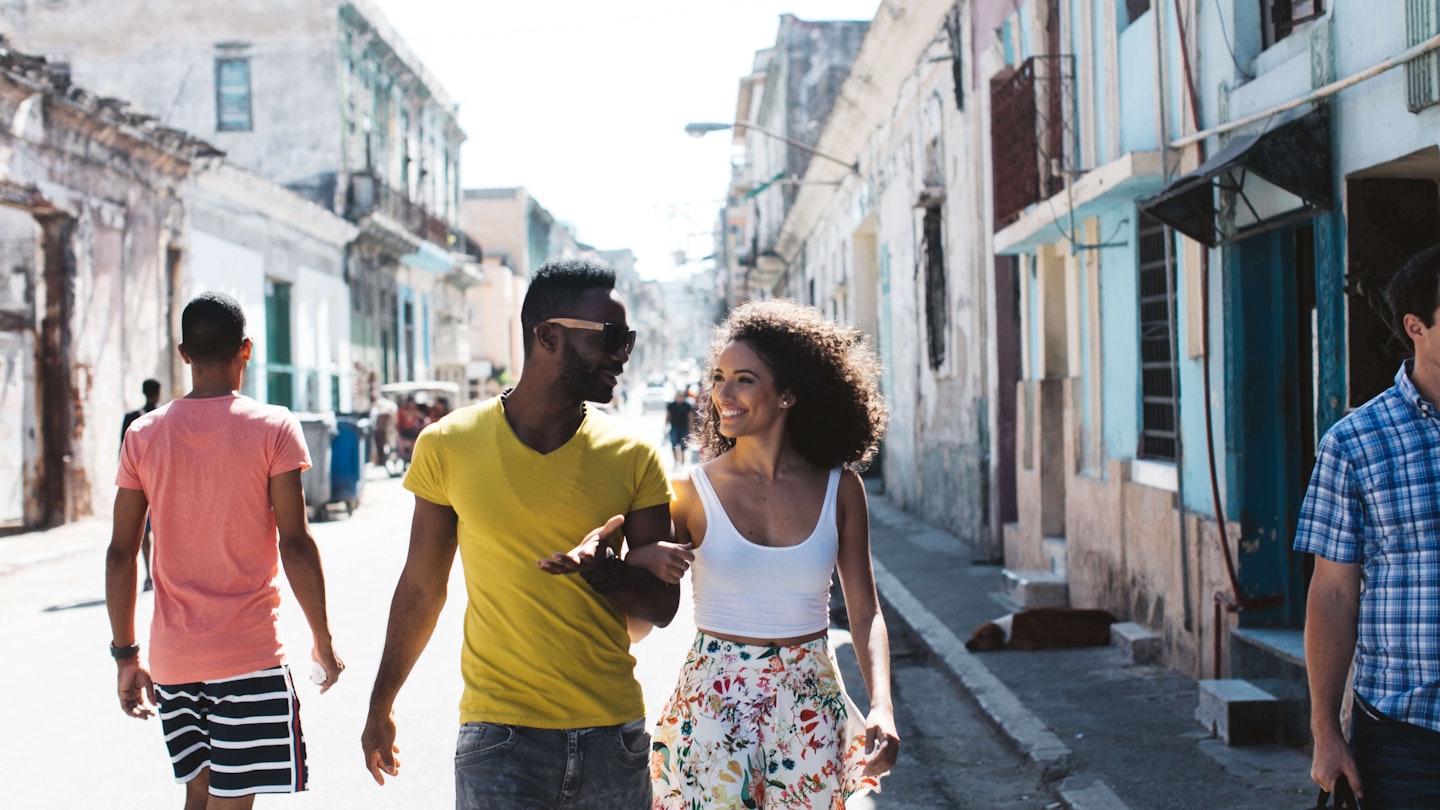
Apply early for a visa to Cuba unless you're one of the few nationalities that don't need one © Matt Porteous / Getty Images
Cuba is a Caribbean paradise, but because of the island’s tumultuous history and international relations, its visa rules can be complicated – especially for visitors from the US.
We've rounded up all the key information you need to know about Cuba ’s entry requirements, including details on the various types of visas, how to secure them and what they'll cost you.
Do I need a visa to visit Cuba?
Citizens of some Caribbean, Asian and European countries, including Russia, Montenegro, Serbia and Singapore, can travel visa-free to Cuba for up to 90 days with a passport that doesn’t expire for at least six months.
Passport holders from all other countries must purchase what is known officially as a Cuba Tourist Card, although it's often referred to as a Cuban visa.
You can get a Cuba Tourist Card one of three ways – pick it up yourself from the Cuban consulate in your home country, apply through the officially licensed third-party Visa Cuba , or have one included as part of a travel package purchased through a travel agency or airline.
You’ll need to provide your passport number, home address, the address of your booked accommodations in Cuba and information on your confirmed flights.
Depending on your country of origin, visa fees range from US$25 to US$85 – additional costs apply depending on who you purchase it from (in person at the consulate is the best way to avoid add-on handling fees).
If you apply by mail, you must send all needed documentation plus a self-addressed return envelope, so that the consulate can mail your visa card back to you.

How do I use my tourist card in Cuba?
As you depart Cuba at the end of your trip, you must present your Cuba Tourist Card to immigration authorities – make sure to store it in a safe place for the duration of your vacation. If you lose it during your stay on the island, you’ll have to wait a few hours for the authorities to clear you and issue a new document before you head back home.
The Cuba Tourist Card allows for a single-entry, 30-day stay in Cuba (90 days for Canadian citizens), but if you decide to stay longer, you can renew your visa for another 30 days at your hotel desk or at the nearest local immigration office.
Is it possible to re-enter the USA after I have been to Cuba?
Unfortunately, many non-US citizens have been caught out by the January 2021 change to the US ESTA (Electronic System for Travel Authorization) rules which now state that your ESTA is invalid if you have traveled to Cuba.
This doesn't mean you cannot go to Cuba via the USA and back, it just means you need to apply for a US visa from a US embassy or consulate.
For additional information about travel eligibility under the Visa Waiver Program, ie the ESTA, go to the US Customs and Border website .
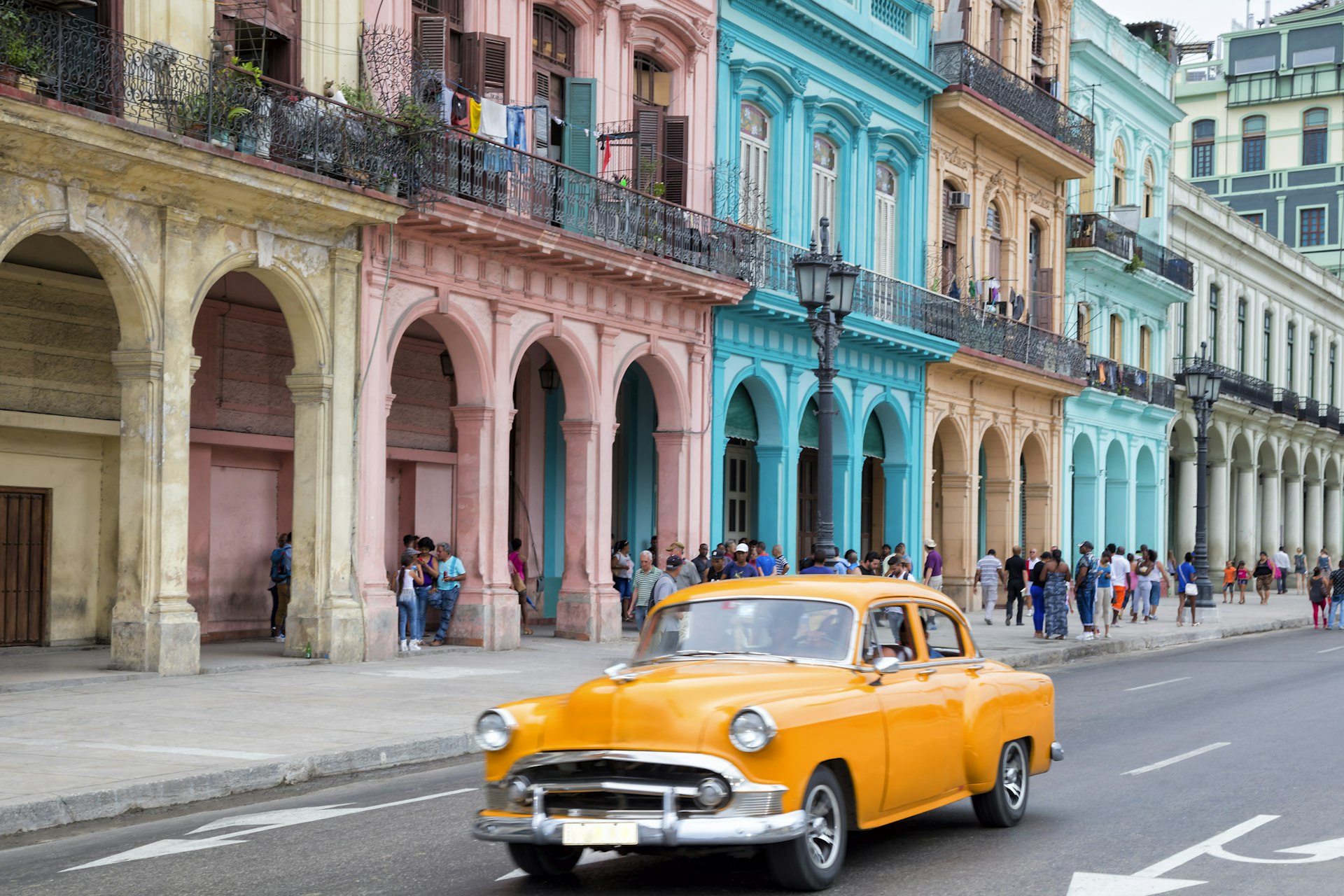
Can Americans visit Cuba?
The rules on Americans visiting seem to change with each new presidential administration. Yet the bottom line remains the same: Americans are allowed to visit Cuba, but traveling for tourism is not officially allowed.
The US Department of State issues licenses for 12 categories of travel , which include family visits, educational exchanges and humanitarian projects.
Independent American travelers might qualify to use the “support for the Cuban people” category; anyone who does this, however, must provide a detailed itinerary of the planned visit.
Additionally, US travelers are required to keep all travel receipts from Cuba for five years. While American citizens are forbidden from staying in Cuba’s government-run hotels , they can stay in casas particulares (private homestays).
If you’re a US citizen, you still need to purchase a Cuban Tourist Card – it's just a little different from the regular one (it’s pink in contrast to the green cards for other nationalities), as well as more expensive. Costs average around US$85 but we've seen up to US$110.
The final amount depends on the travel agency and its handling fees. Fees also apply depending on how you get the tourist card – in person at the Cuban consulate in Washington, DC, or by post.
You may be able to buy your tourist card directly from the airline you’re traveling to Cuba with. Contact them for the latest information.
It’s worth using an experienced US–Cuba travel organizer like Insight Cuba or Cuba Educational Travel – they'll be able to answer all your questions and help you navigate the bureaucracy.
This article was first published March 2022 and updated January 2024
Explore related stories
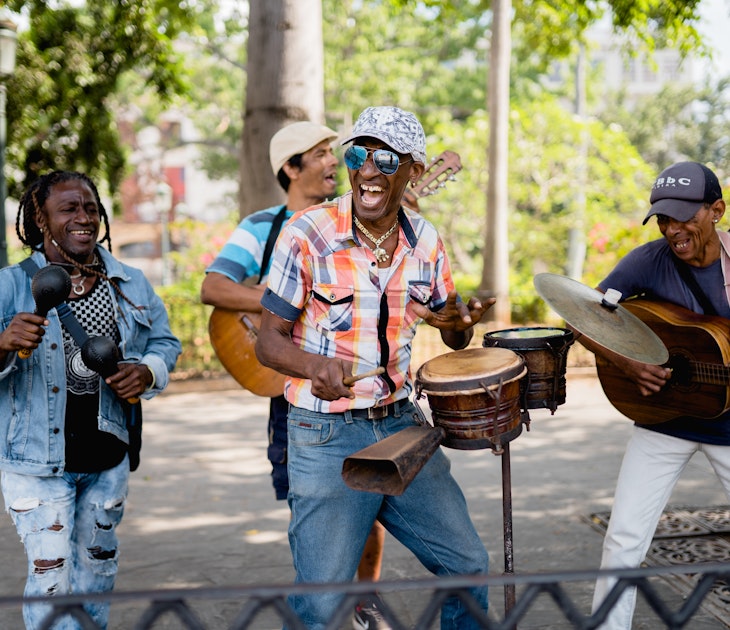
Destination Practicalities
Jan 9, 2024 • 4 min read
Choose the best time for your visit to Cuba with this seasonal guide to lively festivals, top beach weather and budget prices.
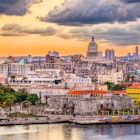
Jan 9, 2024 • 6 min read
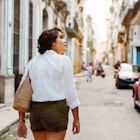
Jan 6, 2024 • 7 min read
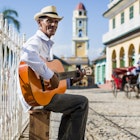
Jan 5, 2024 • 8 min read

Jan 5, 2024 • 4 min read

May 6, 2023 • 9 min read

Jan 6, 2023 • 7 min read

Jan 5, 2023 • 8 min read
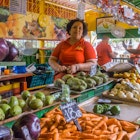
Nov 11, 2022 • 3 min read

Apr 28, 2022 • 6 min read

New Requirements for Travelers to Cuba as of Jan. 23

Cuba implements digital form for in advance visitors Customs declarations as well as personal and flight information
By El Toque
HAVANA TIMES – The Cuban government will require, as of January 23, 2023, a digital customs declaration for travelers entering the country. The declaration is part of a more extensive digital form (which also contains immigration and health information) that will be mandatory for visitors, both Cubans and foreigners.st
The digital form called D’ VIAJEROS ―which had been on test since November 2022― was definitively implemented by the Ministry of Transportation. The form is intended to replace the old paper affidavit format that passengers arriving in Cuba must fill out.
The questions on the form are designed to obtain advance information from those who need to enter Cuba and must be completed 48 hours before the trip in order to be shown, in the form of a QR code, to the airline and border authorities. The form can be accessed thr: https://dviajeros.mitrans.gob.cu/inicio
D’ VIAJEROS demands a series of mandatory data and other things of an optional nature. In its filling out, the visitor will find five sections: one is Customs; another to provide general information (name, surname, gender -it only allows you to choose between male and female-, country of birth, residence and travel document or passport); another for immigration information (arrival date, flight number, point of entry to Cuba and reasons for the trip); another for health data related to COVID-19; and finally the declaration of veracity of the data, which warns that “any omission or inaccuracy violates the provisions of the Cuban authorities.”
Changes in Customs regulations: personal baggage and parcel shipment
Back on August 15, 2022, new measures for the non-commercial importation and shipment of packages to Cuba entered into force. What are the main changes with the new requirements?
After filling out the online form, the site will generate a QR code that will be sent to the email that the passenger provides to the system. The traveler must keep the code in print or on their phone, since the airline’s representatives will request it prior to boarding and, in Cuba, the immigration and customs authorities will request it after arrival.
Cuban Customs approved the use of D’ VIAJEROS to collect the information that the institution needs from each person who enters the country. In the regulations, the institution agreed that the customs declaration, contained in D’ VIAJEROS, will also be available in paper format when the visitor does not have, for some reason, the online form.
The data that will be required on a mandatory basis are: the passenger’s general data, the airline flight data and the list of items to be imported, equipment or others, their quantity and value, and if they have technical authorization from the Ministry of Communications to import telecommunications equipment.
The amount of foreign currency that is brought in is also declared, but only if the amount exceeds five thousand dollars or other currencies or equivalent payment instruments. The possession of weapons of any kind, ammunition, drugs or substances with a similar effect, live animals, equipment or components for wireless telecommunications, products of animal or vegetable origin, articles for commercial purposes, cultural goods and pornography must be declared.
In a press conference, covered by the Cuban News Agency, directors of Cuban Aviation, Customs and the Ministries of Public Health and Tourism specified that the new platform will “facilitate and improve the experience of travelers in their transit through immigration, customs, and public health services, contributes to health controls, reduces the exchange of documents with the authorities, and speeds up procedures at the different air terminals by providing advance information.”
Read more from Cuba here on Havana Times
- River at Sunset in Matanzas, Cuba – Photo of the Day
- The Communist Party of Cuba’s Best Factory
2 thoughts on “ New Requirements for Travelers to Cuba as of Jan. 23 ”
and what EXACTLY are the questions that relate to covid vaccines? is a negative pcr test required to board an airplane into cuba?
Anyone who knows how things work in Cuba also know the official justification for this digital change is a pile of horse manure.
Comments are closed.
How to Fill Out Cuba’s D’Viajeros Immigration Forms
Step-by-Step Instructions for Getting the Cuba QR Code
During the pandemic, the Cuban government switched from paper customs, immigration, and health declaration forms to the electronic forms which travellers must fill out prior to arrival on the D’Viajeros website. Airlines require you to show this code before you are allowed to board your flight to Cuba. Here are step-by-step instructions to help you fill out the D’Viajeros travel forms and obtain the QR code that you need to enter Cuba.
Step 1: Accessing the D’Viajeros form
Cuba’s customs and immigration forms are on the D’Viajeros website . You will be able to fill in the form around 48-72 hours before arrival, you can’t fill it out any sooner. Conversely, you should not wait until the last minute to fill out your form in case the website doesn’t work or you have trouble connecting. If it doesn’t work, that gives you time to try again. While Cuba will allow you to fill out the paper forms upon arrival, airline desk agents expect to see the QR code during the check-in process.
To fill out the form you will need:
- Passport information
- Arrival and departure flight number
- Address of accommodations
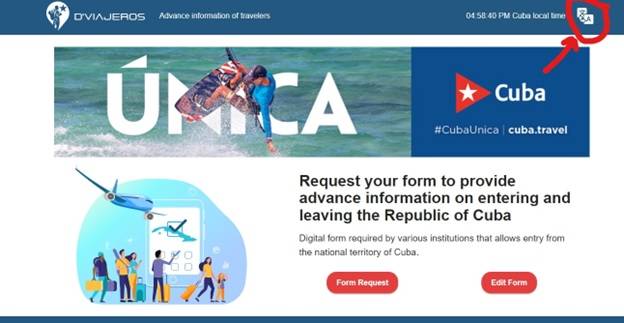
Step 2: Change the language
The page usually loads in Spanish; you can change the language to English and six other options by selecting the translation symbol at the top. The translation option could also be represented as a flag or text. Sometimes there is a delay, if you don’t see any language option, allow the page to load completely.
Step 3: Fill in Personal Data
To start the form, click the “form request” button. The first section is “Personal Data”; only the fields highlighted are mandatory to fill out. Ensure you use the proper date format: day/month/year. For United States, enter USA. Although the email category is not marked mandatory, you must fill this out to get the QR code emailed to you.
Step 4: Fill in Migratory Information
Only three days are available on the calendar for the arrival date because you aren’t permitted to fill out the form further in advance. For “port of entry”, you will select your arrival airport in Cuba – for Cuban Adventures travellers, it is usually Jose Marti Airport. Your “country of origin” is the country where you are departing from, not where you live. So if you live in Australia but fly to Cuba via Mexico, you will enter Mexico.
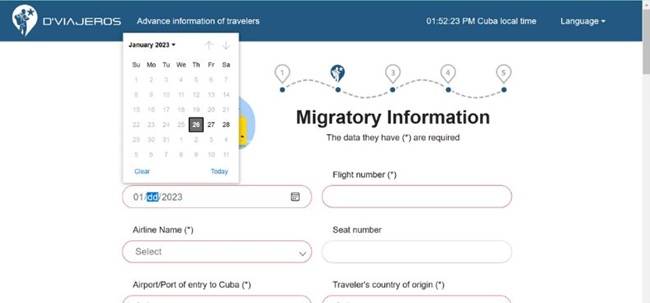
Step 5: Select Reason for Travel
Are you coming to Cuba on vacation? If so, you must select “tourism”, even if you are a US citizen . It doesn’t matter that the US government considers tourism to Cuba illegal, this is the Cuban government’s form. When it comes to the Cuban Government, you want to be a tourist.
Leave “Institution” blank.
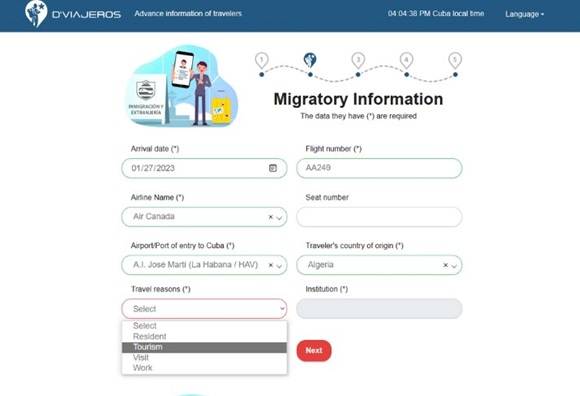
Step 6: Sanitary Information
This section is your health declaration. As you see, it is mostly optional, except for questions about where you are staying in Cuba. However, it is good to fill in everything except the PCR information. No vaccines or testing are required to enter Cuba, although you may be subject to a temperature check and random Covid testing upon arrival.
If you are staying in a casa particular, also known as a bed & breakfast, or guesthouse, you will select “House or Room for Rent”.
The most common municipalities in Havana where tourists stay are Habana Vieja (Old Havana), Centro Habana, and Plaza de la Revolucion (Vedado).
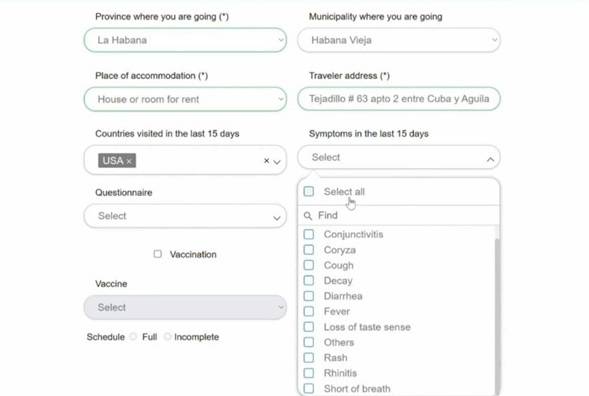
Step 7: Customs Declaration
Most travellers only need to select the following on this section of the form:
Unaccompanied baggage – No
Number of Minors
Do You Have Something to Declare at Customs – No
If you travel with children or other family members, each person needs their own form. However, the form asks you for the passport number of children under 10 who are accompanying you.
Most visitors to Cuba will not need to declare anything . Even if you bring food, medicine, or other goods as donations or “gifts”, you are not required to declare them.
You do not need to declare your cash as long as it does not exceed the value of US$5000.
Leave the MINCOM authorisation number blank.
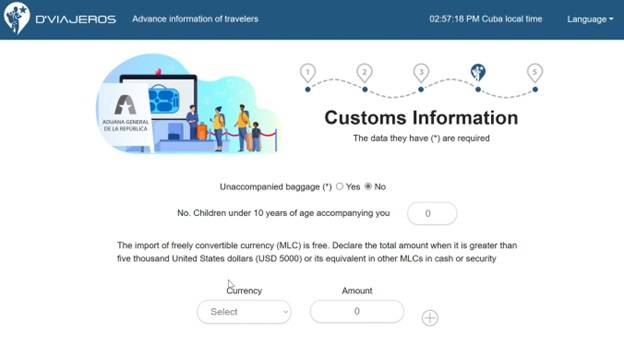
If you need information about what you can bring into Cuba, there is a Traveler Manual in English and Spanish on the D’Viajeros home page.
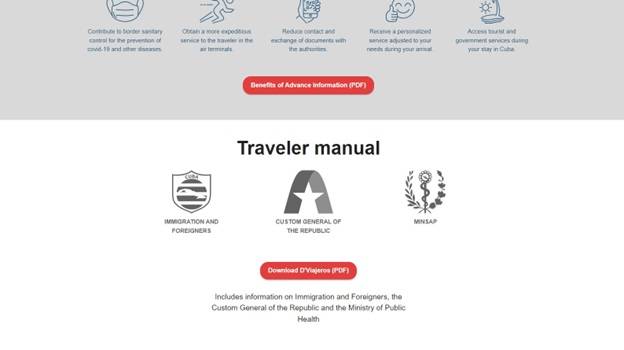
Step 8: Save or Print the QR Code
After completing the above steps, you will sign the declaration and submit the form, giving you access to your QR code. While this code is supposed to be emailed to you, you should screenshot, print, or download the code in case you never get the email. You will need to be able to access it even without an internet connection.
Frequently Asked Questions
What if the d’viajeros website doesn’t work.
If you are having trouble filling out the D’Viajeros form, make sure you are entering the information correctly, e.g., date in the proper format, and not trying to access the form too early. If the form isn’t working, you will need to keep trying, which is why it’s important to fill out the form at the first opportunity. If the system is down, you can fill out paper forms in Cuba. Although there is a contact on the website, you may not receive a response if you reach out for tech support.
Do Cuban Citizens need to fill out the form?
Does my child need their own form.
Yes, each person in your party needs their own form.
Will I get in Trouble for Selecting Tourism as my Reason for Visit?
No, this is Cuba’s form, not the US’ form. Cuba does not enforce the embargo against it. In Cuba, if you are visiting for a reason other than tourism, you may have to have a special visa.
What Happens if I Make a Mistake or Need to Change the Form?
You should receive an email with a QR code and a form code that you can use to access your form on the website. You can choose the option “Edit Form” on the homepage.
What if I Don’t Know What to Put in Some of The Fields?
These step-by-step instructions cover every mandatory field on the form. If there is a field that you don’t know how to fill out, check and see if it’s mandatory or if you can just leave it blank.
My Arrival Date Isn’t on the Calendar!
You are trying to fill out the form too soon. You need to wait until 2-3 days before your arrival.
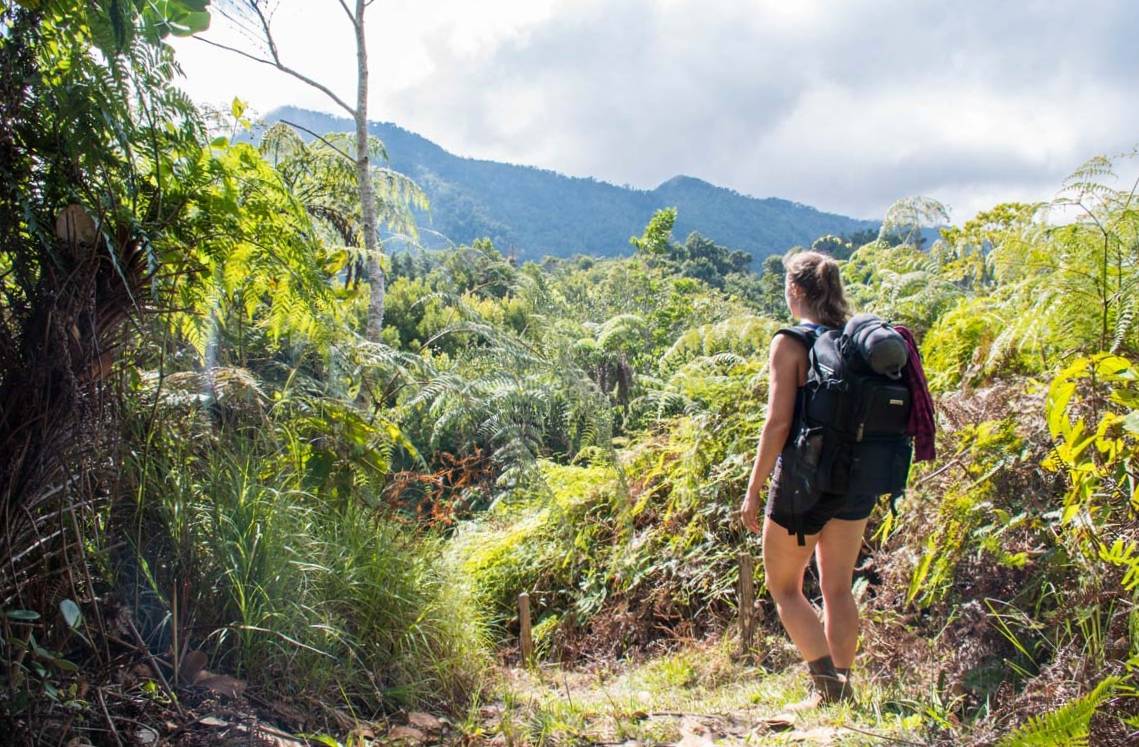
Favourite treks in Cuba in order of best hike first. See what our tour company founder John Ahrens recommends as the best walks to do in Cuba including Pico Turquino

How do Cubans celebrate Christmas? Learn about a time when Santa was banned and what to expect In Cuba during the holidays

The winter months of Nov, Dec, and January are a great time for birdwatching in Cuba. This is when migratory species are present on the island and the weather is fine and mild.
Choose your language

Welcome to Cuba
More than you imagined
Plan your holiday to Cuba
Cuba Up-Close
Six Essential Tips for Your Trip to Cuba 2022
From alternative accommodation to bypassing the restrictive internet in Cuba, check out these six essential tips for your trip to Cuba.
Cuba up-close
When is the best time to visit Cuba?
Planning a visit to Cuba? The island offers sunny skies and activities year-round. Learn more about its seasons, weather, and cultural calendar.
Is it safe to travel to Cuba?
Here are some of the best safety tips to follow as you enjoy your trip, and use public transportation in Cuba.
Greatest Waterfalls in Cuba
Imagine finding yourself in Cuba, surrounded by an exuberant natural environment - where the vivacious green mountains stretch out into a splendid blue sky - while the fresh Caribbean seabreeze brightens your face. And on this tropical voyage, you discover a land of waterfalls on every corner of the island.
El Nicho waterfall, Sierra de Escambray
Photo: Shutterstock
Looking for some cool things to do?
La casa del ché: the home of ché guevara.
Discover Ché Guevara's life & legacy at Casa del Ché
Explore Varahicacos Reserve in Varadero
Indulge in the landscape of Cuba at Varahicacos Ecological Reserve,
Visit the Museo de la Revolución, and Relive the Fight for Cuba
Havana’s Museo de la Revolución offers a thorough look at

Top Four Jazz Clubs in Havana
Things to DoTop Four Jazz Clubs in Havana La Zorra
Castillo del Morro: A Historical Fortress in Havana
Learn about the History of Cuba in the bay of
Trace the Steps of Hemingway Around Havana
Stroll through Cuba’s storied streets with this guide to Ernest
Where to Drink in Havana: Our Essential List of the Best Bars
Explore our essential list of the best bars in Cuba,
Five of the Best Beaches in Cuba
Discover the best Cuban beaches making a splash in the
Tarará Beach – Havana’s Best Kept Secret
Tired of typical tourist spots? Get to know Tarará beach,
Five of the Most Instagrammable Cafes in Havana
Havana is full of gems to start your morning on
Cuba’s capital has always enjoyed a lively jazz scene, and has produced legendary musicians. It’s time to visit Havana’s best jazz clubs!
La Zorra Y El Cuervo jazz club, Vedado, Havana
Photo: Alamy
Winter activities and tips!
History & Heritage
Visit the Museo de la Revolución
Wildlife & Nature
Ciénaga de Zapata
Castillo del Morro
Beaches & Islands
Hit the Beach at Tarará
Ciénaga de Zapata: A Natural Cuban Treasure
Encounter the endemic flora and fauna of Matanzas Cuba, and
The Cuban Cigar: Everything You’ll need to know
Learn about the curious and mysterious history of the Cuban cigar, how a Habano is made, and where you can buy quality tobacco like Cohiba cigars.
A Cuban woman with a cigar, Havana
Check Us out on Instagram
@govisitcuba, subscribe to our newsletter.
Get more travel inspiration, tips and exclusive offers sent straight to your inbox
I would like to get Visit Cuba newsletters in my inbox
Paradise for Your Inbox

How to Get a Cuban Visa: A 4-Step Guide for Americans
Cuba is open to U.S. travelers, and if you plan to visit, you’ll be required to get a Cuban Tourist Card or Tourist Visa. You probably have many questions: Does it matter if I fly directly from the US to Cuba? Which color visa is the correct one, the pink or the green?
This article covers everything you need to know about the Cuba Tourist Visa, including how to get the right type of visa depending on your airline and where your flight is coming from before landing in Cuba.
As an American traveling to Cuba , you have questions. So why not get answers from locals in Cuba to make things easier? Our trip planners are real locals who can help you understand the rules—and plan your itinerary so you have a unique experience and explore their country like the locals do. Learn more .
Do You Need a Cuba Tourist Card?
Pink or green cuba tourist visa: which should you get, how much does the cuba tourist visa cost, how to get a cuba tourist card, cuba tourist card vs. regular visa, what happens if i lose my cuba tourist card, as an american visiting cuba, do you need anything else besides a tourist visa, locals make planning a trip to cuba easy.

Cuba requires almost everyone who travels there to get a “Tarjeta del Turista,” or Cuban Tourist Card (sometimes referred to as a visa). This card gives a traveler permission to visit Cuba for up to 30 days and can be extended once for another 30 days.
The only exceptions are for citizens of Antigua and Barbuda, Barbados, Belarus, Benin, Bosnia, China, Dominica, Grenada, Macedonia, Malaysia, Montenegro, Mongolia, Namibia, Saint Kitts, Saint Lucia, Saint Vincent, Serbia, Singapore, and Vietnam. Travelers from these countries can visit Cuba without a Tourist Visa.
The Cuba Tourist Card requirement is not part of the U.S. travel regulations for Cuba . The Tourist Visa is a separate document required by the Cuban government.
Still have questions? Keep reading or get in touch with a local expert in Cuba .
There are two types of Cuban Tourist Cards: pink and green. Which one you need depends on which country you’re traveling from.
If you’re flying to Cuba from the US, you'll need to get the pink Tourist Card.
If your flight originates anywhere besides the US, or makes a stop outside the US before arrival, you'll need to purchase the green card.
The Tourist Card is absolutely essential—no matter where you take off, you’ll need the card to board the plane to Cuba .
The color has nothing to do with your nationality, just the country you are entering Cuba from.
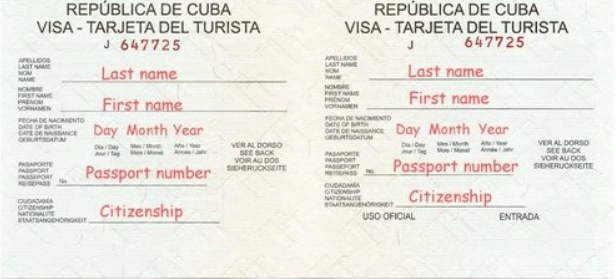
How ViaHero Works

Choose a local

Message the local

Get a guidebook
Depending on where you get it, the cost of a Cuba Tourist Card varies between $25 USD and $100USD. The green cards are typically less expensive than the pink cards. Once you account for shipping costs, acquiring the card through your airline will usually be less expensive, but many people prefer to pay for shipping to get the benefit of having the card in hand ahead of time.
Tip: Travel to Cuba is very affordable . Don’t spend time worrying about the cost of the Tourist Card.
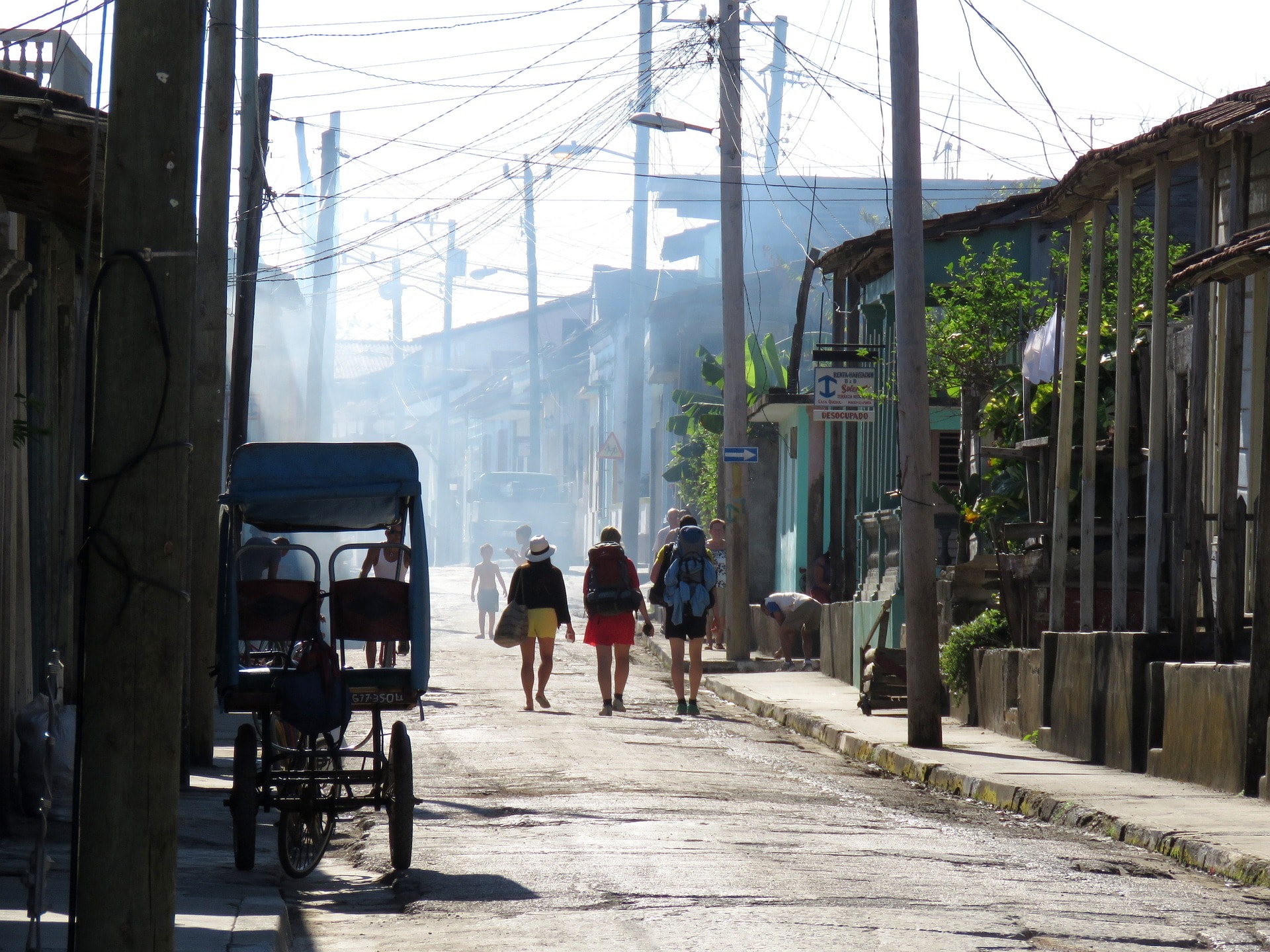
You can get a Cuba Tourist Card online, from your airline, or from a travel agency. You can also try to contact your nearest Cuban embassy or consulate, but they are notoriously slow to respond.
Here are the best ways to purchase a Cuban Tourist Card:
1. Buy it Online
You can buy your Tourist Card online, in advance of your trip . This is the easiest and safest option if you don't want to wait until the very last moment to secure your necessary travel documents. You should do this at least a month prior to your trip.
If you're traveling from the US to Cuba (regardless of citizenship), you can use Online Tourist Card to get the best rate on your pink Cuban Tourist Card.
Online Tourist Card ships within the US via UPS. There are many shipping options to choose from.
If traveling from anywhere else in the world to Cuba, you can use Easy Tourist Card to buy your green Cuban Tourist Card.
Easy Tourist Card ships worldwide via DHL. There is only one shipping option.
Purchasing the Tourist Card online ahead of time allows you to skip the lines at the airport (especially important if you have a connecting flight to Cuba).
2. Buy it From Your Airline
Some airlines assist travelers with the purchase of the Tourist Visa for travel to Cuba . In some cases, you can purchase the Tourist Card at the airport, but this may not be true in all cases.
It is essential that you check with your airline to confirm their policy. You don’t want to arrive at the airport without a Tourist Card if the airline doesn’t provide it because they may not let you board the plane.
Here are the guidelines for the airlines that fly to Cuba from the United States. These guidelines are accurate as of October 2023, but are subject to change. The prices listed below vary because each airline charges different fees on top of the actual cost of the visa.
Delta : $100 ($50 + $50 processing fee), purchase at the gate before boarding.
United: $85 ($50 visa + $35 processing fee), purchase at the gate in Houston or New York/Newark.
American : $100 ($50 visa + $50 processing fee), available at the Miami airport.
Tip: Processing fees are often lower for Tourist Cards purchased online through sites like Online Tourist Card . Plus you get the peace of mind of having your visa in hand well before your departure date.
3. Get it from a travel agency
If you hire a travel agency to organize your trip or join a tour group run by a travel company, they will sometimes include the Tourist Card in their pricing, but make sure that they are a reliable company and ask if the card is included before your trip. Most travel agencies will bundle the Cuba Tourist Card into their existing Cuba travel packages.
4. Buy it From Your Country’s Cuban Embassy or Consulate
Your nearest Cuban Embassy may sell Tourist Cards. The price will vary by location and consulate, and many travelers complain about response time and service when inquiring about Tourist Cards. Because of this, we recommend getting the tourist card via one of the options listed above.
Americans traveling for certain business purposes, to attend school, to visit family, and for select other reasons may need to apply for a full Cuba visa because their activities will not be covered by the Cuba Tourist Visa. The most up-to-date information on these visas is available on the Cuban embassy website .
If you lose your Tourist Card, you must replace it before you will be allowed to depart Cuba. You’ll have to spend a day dealing with Cuba’s bureaucracy instead of enjoying a day exploring and experiencing Cuba's awesome things to do . To avoid a huge hassle, keep your Tourist Card tucked into your U.S. passport . Also, be sure to carry your passport with you at all times, a Cuba travel safety best practice.

Yes, as an American, you should make sure that when planning a trip to Cuba, you have all of the necessary documents. Here’s what you will need to do:
Pick Your Travel Category - You’ll need to choose a travel category that fits with your planned activities for the trip. Learn about the different categories Americans can use for their travel to Cuba.
Make an Itinerary - Your itinerary serves as proof upon return that you’ve complied with the guidelines of the travel category you chose. (Our Heroes can create a custom itinerary based on your interests that meets the Cuba travel requirements.
Health Insurance - You are required to purchase Cuban health insurance before entering Cuba, but if you're flying from the U.S., check with your airline to see if the insurance is included in your ticket purchase. If not, you can purchase it beforehand or at the airport when you land, before passing customs.
Health Declaration Form - This form is required to monitor and prevent the spread of COVID-19.
Planning a trip to Cuba can be complicated. There's not a lot of information out there! That's why ViaHero offers local Cuban trip planners to help guide you through every step of the process.
Seriously, check them out—we guarantee that working with a local to plan your trip will make it absolutely unforgettable and way easier to navigate.
Looking for more info?
Check out our articles on getting a Cuba General License and how you can still travel to Cuba . Then, start preparing for your Cuba adventure .
- Connect With a Local to Plan Your Trip
- You Can Still Travel to Cuba: 2023 Update
- New Cuba Travel Policy Updates
- Independent Havana Tours
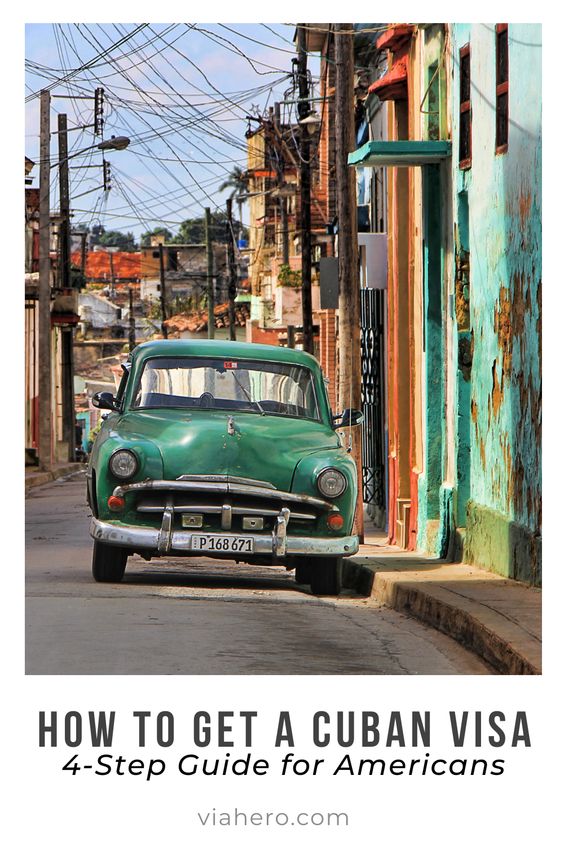
Welcome to the Online Visa Application System of the Republic of Cuba.
Please, find the country where you are to fill out your application
Copyright © 2024. All rights reserved.
Designed By Zymphonies
Cookies on GOV.UK
We use some essential cookies to make this website work.
We’d like to set additional cookies to understand how you use GOV.UK, remember your settings and improve government services.
We also use cookies set by other sites to help us deliver content from their services.
You have accepted additional cookies. You can change your cookie settings at any time.
You have rejected additional cookies. You can change your cookie settings at any time.
- Passports, travel and living abroad
- Travel abroad
- Foreign travel advice
Entry requirements
This advice reflects the UK government’s understanding of current rules for people travelling on a full ‘British citizen’ passport from the UK, for the most common types of travel.
The authorities in Cuba set and enforce entry rules. If you’re not sure how these requirements apply to you, contact the Cuban Embassy in the UK .
COVID-19 rules
There are no COVID-19 testing or vaccination requirements for travellers entering Cuba.
Passport validity requirements
To enter Cuba, your passport must have an ‘expiry date’ at least 6 months after the date you arrive and 3 months after your planned departure date.
Check with your travel provider that your passport and other travel documents meet requirements. Renew your passport if you need to.
You will be denied entry if you do not have a valid travel document or try to use a passport that has been reported lost or stolen.
Visa requirements
If you’re visiting Cuba as a tourist, you need to get a tourist card before you travel. Apply through the Cuban Embassy in the UK or check with your travel agent or tour operator.
You must also show proof of onward or return travel. See Cuba’s consular services information for details.
For more information and advice about other types of visas, contact the Cuban Embassy in the UK .
Overstaying your visa
The authorities take any breach of immigration rules seriously. You could be detained if you overstay your visa.
Checks at border control
You must complete the arrival form on the D’Viajeros traveller information portal at least 72 hours before you arrive. You’ll get a QR code to show to the authorities on arrival.
Travelling from the USA to Cuba
Under US law, you are not allowed to travel directly from the USA to Cuba for tourism.
There are 12 reasons or categories for which the USA authorities will approve direct travel from the USA to Cuba. For more information see the US Department of the Treasury website , the US State Department’s travel advice for Cuba and the Code of Federal Regulations .
Travelling from Cuba to the USA
You cannot travel from Cuba to the USA without a US visa.
Vaccine requirements
You must have a certificate to prove you’ve had a yellow fever vaccination if you’re coming from a country listed as a transmission risk .
For full details about medical entry requirements and recommended vaccinations, see TravelHealthPro’s Cuba guide .
Customs rules
There are strict rules about goods you can take into and out of Cuba . You must declare anything that may be prohibited or subject to tax or duty.
Art and antiques
Some art and antiques require an export permit from the Country Heritage Office (‘Bienes Culturales’). Ask the vendor if they have the required permit for the item you are buying. At the airport, you may need to show the receipt.
Photography equipment
You may need an import licence for photography equipment, as well as the appropriate journalism visa.
You are not allowed to bring drones into Cuba. They will be confiscated on arrival and not returned until your departure. The process for getting your drone back could be lengthy.
You cannot take meat products, milk, fresh fruit, vegetables, seeds or organic matter into Cuba, with some exceptions .
Electrical items and GPS on mobiles
Some electrical items with heavy power consumption may be confiscated on entry to Cuba.
Global Positioning Systems ( GPS ) are subject to import requirements. Mobile phones, tablets and laptops can be taken to Cuba, but you must turn off any inbuilt GPS .
Complete a customs form if items are confiscated on your arrival so you can collect them on your departure date.
Taking money into Cuba
The Cuban national peso (CUP – ‘moneda nacional’) is the official currency and cannot be exchanged outside of Cuba. Declare foreign currency you’re taking into Cuba if the value is more than 5,000 US dollars.
You must only exchange money at the Cadeca exchange houses. It is illegal to exchange money anywhere else. See Money .
Related content
Is this page useful.
- Yes this page is useful
- No this page is not useful
Help us improve GOV.UK
Don’t include personal or financial information like your National Insurance number or credit card details.
To help us improve GOV.UK, we’d like to know more about your visit today. We’ll send you a link to a feedback form. It will take only 2 minutes to fill in. Don’t worry we won’t send you spam or share your email address with anyone.

- GEOGRAPHY

The culture of Cuba is one of its biggest assets. Diverse and mixed, it takes part in the identity of the Cuban and in the construction of the nationality.

The Cuban archipelago is located in the most occidental part of the insular Caribbean. Groups the island of Cuba, the island of La Juventud and more of four thousand islets and keys. The territory emerged is one of 111 thousand km². The geography of Cuba, with 6 thousand km of shores, houses numerous inlets, bays and beaches.

The nature of Cuba is rich and curious in all its extension. The Flora distinguishes by the endemic and diversity of its plant communities. Of all this groups, the orchids, cacti and palms are the highlighted ones. The fauna of Cuba has the peculiarity of having in the smallest its most exclusive features, and in the 368 different bird species, the reptiles and amphibians, the exclusivity has high percentage.

The official language in Cuba is Spanish, and because of the high level of education of the population, its use is correct and with a wide vocabulary of “cubanismos”. A good part of the population also speaks English, and the tourist sector speaks frequently speaks German, French, Italian and Russian.

The weather in Cuba is tropical, seasonally wet, with maritime influence and semi continental features; however, coexist other weathers located in the mountains systems and on the coasts. The weather in Cuba is divided in two periods:
Cuba is an archipelago made up of the largest island of the Antilles called Cuba, Isla de la Juventud (formerly called Isle of Pines), and another 4,195 cays, islets and adjacent islands. It is located in the Caribbean Sea (or Caribbean Sea), near the coast of the United States and Mexico. Its limits are to the north with the Strait of Florida, to the east with the Paso de los Vientos, to the south with the Caribbean Sea and the west with the Gulf of Mexico. It has an area of 109 884.01 square kilometers.
Methods of payment in Cuba, How can I pay in Cuba?
One of the most frequent concerns for travelers when organizing a trip is the issue of currency: how much money do we need, what currency (or currencies) should we bring, what payment methods should we use and how difficult it can be to obtain it.
Read more ...
Sunwing Airlines restores flights to Cienfuegos and Manzanillo destinations
Canadian airline Sunwing Airlines will resume flights to the cities of Cienfuegos and Manzanillo, starting this December 8.
Varadero Gourmet International Festival 2023 is about to happen in Cuba
The XIII Edition of the Varadero Gourmet International Festival will be held from September 20 to 23 at the Plaza America Convention Center, located in the seaside resort of this tourist destination, under the theme "La salvaguarda de la comida criolla cubana " (Safeguarding Cuban Creole Food).
Cuba: A multifaceted destination
Cuba is a safe destination, full of cultural, historical and natural treasures.
Find here the events that will take place in Cuba from February to April.
"Upcoming Events in Cuba¨
Cuba has an extensive calendar of events, fairs and festivals exponents of various topics such as culture, health, education, biotechnology.
Find out here the events that will take place in Cuba from February to April and plan to enjoy a diverse culture.
OUR DESTINATIONS

PINAR DEL RIO

VARADERO MATANZAS

CAYO LARGO ISLA DE LA JUVENTUD

VILLA CLARA

TRINIDAD SANCTI SPIRITUS

JARDINES DEL REY CIEGO DE ÁVILA

SANTIAGO DE CUBA

BARACOA GUANTANAMO

SUN AND BEACH

NAUTICAL SPORTS

Share Cuba Travel
- Skip to main content
- Skip to "About this site"
Language selection
Search travel.gc.ca.
Help us to improve our website. Take our survey !
COVID-19: travel health notice for all travellers
Cuba travel advice
Latest updates: The Need help? section was updated.
Last updated: March 25, 2024 10:25 ET
On this page
Safety and security, entry and exit requirements, laws and culture, natural disasters and climate, cuba - exercise a high degree of caution.
Exercise a high degree of caution in Cuba due to shortages of basic necessities including food, medicine and fuel.
Resort areas - Take normal security precautions
- Cayo Largo del Sur
- Cayo Santa Maria
Guardalavaca
Back to top
Petty crime
Petty crime, such as pickpocketing and purse snatching, occurs.
Theft generally occurs in crowded places such as:
- tourist areas
- public buses
- night clubs
It can also occur in isolated areas.
Theft from hotel rooms, particularly in private accommodations ( casas particulares ), and from cars is common.
- Ensure that your personal belongings, including your passport and other travel documents, are secure at all times
- Don’t pack valuables in your checked luggage
- Avoid showing signs of affluence
- Keep electronic devices out of sight
- Carry valid identification at all times
- Keep a digital and a hard copy of your ID and travel documents
- Avoid carrying large amounts of cash
- Never leave belongings unattended in a vehicle, even in the trunk
Violent crime
Incidents of violent crime are not frequent, but assaults may occur. They mainly occur during a burglary or robbery.
- Stay in accommodations with good security
- Keep your windows and doors locked at all times
- If threatened by robbers, don't resist
Credit card and ATM fraud may occur.
Be cautious when using debit or credit cards:
- pay careful attention when your cards are being handled by others
- use ATMs located in well-lit public areas or inside a bank or business
- avoid using card readers with an irregular or unusual feature
- cover the keypad with one hand when entering your PIN
- check for any unauthorized transactions on your account statements
Some businesses may try to charge exorbitant prices, namely taxis and classic car rentals. Disputes about overcharging may lead to violence.
- Always confirm prices before consuming or taking up a service
- Avoid running a tab
- Avoid leaving your credit card with bar or restaurant staff
- Check your bill to make sure it’s exact
Some hustlers specialize in defrauding tourists. Most of them speak some English or French and go out of their way to appear friendly. They may offer to serve as tour guides or to facilitate the purchase of cigars. Some have used violence in their efforts to steal tourists.
Fraudulent tour agents and taxi drivers also operate throughout the country, including at Havana’s international airport. Thefts of luggage from taxi trunks have occurred.
In bars, sex workers, including minors, may be very persistent and intrusive with tourists who refuse their advances. Foreigners, including Canadians, have been the victim of theft after engaging in sexual relations, and some of them have faced child sex accusations.
- Use reputable tour operators and registered taxis only
- Avoid independent street vendors
- Be wary of strangers who seem too friendly
Overseas fraud
Cuba faces chronic and severe shortages of basic necessities, including:
- bottled water
- public water supply
- hard-currency
Fuel shortages are currently critical and affect a wide range of services. Travelling across the island is extremely challenging. Public transportation services, including taxis, are often disrupted, leaving tourists with few options to travel. Some travellers have been temporarily stranded with a rental car. Intermittent shortages of tap water provided by municipalities happen, including in Havana and in resorts.
Hotels and resorts, that often use generators during power outages, may not be able to maintain their services. Fuel shortages may also affect government services.
Local authorities enforce the rationing of food and medications, which could also affect travellers.
Shortages may lead to disruptions to other essential services. There are often long line-ups at gas stations that have led to altercations.
- Plan accordingly
- Bring some basic necessities with you such as toiletries and medication
- Keep a supply of water, food and fuel on hand
- Make sure you always have access to a complete emergency kit
Power outages
Power outages occur regularly outside of Havana and touristic areas.
Obtaining services during an outage is challenging.
Women’s safety
Women travelling alone may be subject to some forms of sexual harassment
Incidents of sexual assault against Canadian women have occurred, including at beach resorts.
If you’re the victim of a sexual assault, you should report it immediately to the nearest Canadian consulate or embassy and seek medical assistance. You should also report the incident to Cuban authorities and ensure that local police provide you with a Comprobante de Denuncia. This document confirms that a report has been filed.
A criminal investigation will likely not be possible if no formal complaint is made to Cuban authorities before you depart the country.
Police officers may speak only Spanish.
Advice for women travellers
Spiked food and drinks
Snacks, beverages, gum and cigarettes may contain drugs that could put you at risk of sexual assault and robbery.
- Be wary of accepting these items from new acquaintances
- Never leave food or drinks unattended or in the care of strangers
Telecommunications
The telecommunications network in Cuba is poor. Connections are unreliable and may be intermittent.
Some Canadian cell phones may not work, even in large cities. Internet access is limited across the island.
Local authorities control telecommunications. They may block access to mobile phone and Internet in case of civil unrest or before demonstrations.
- Don’t rely on your mobile phone for emergencies, especially outside major cities
- Subscribe to and install a VPN service before leaving Canada
- Avoid travelling alone
- Inform a family member or friend of your itinerary
Online transactions
Online banking or shopping may be challenging in Cuba, if at all possible. Most Cuban websites are unsecure. Many are inaccessible.
Some travellers, who bought their travel package online on a travel website in Canada, found out on arrival in Cuba that their hotel received no reservation or payment.
- Avoid online shopping
- Check with the hotel if they accept online reservations and payments if you plan to book online
Demonstrations
Demonstrations sometimes occur, even if taking part in them may be illegal. Local authorities will break up political demonstrations or gatherings not sanctioned by the government. They may also block access to the Internet, including social media, without notice.
Even peaceful demonstrations can turn violent at any time. They can also lead to disruptions to traffic, public transportation.
- Don’t participate in demonstrations
- Avoid areas where demonstrations and large gatherings are taking place
- Follow the instructions of local authorities
- Monitor local media for information on ongoing demonstrations
Mass gatherings (large-scale events)
Water activities
Rescue services may not be consistent with international standards. Tidal changes can cause powerful currents, and riptides are common. Not all beaches have lifeguards or warning flags to warn of hazardous conditions.
- Never swim alone or after hours
- Don’t swim outside marked areas
- Monitor weather warnings
- Avoid visiting beaches or coastal areas during periods of severe weather warnings
- Don’t dive into unknown water, as hidden rocks or shallow depths can cause serious injury or death
- Consult residents and tour operators for information on possible hazards and safe swimming areas
Tour operators and diving centres may not adhere to international standards.
If you undertake adventure sports, such as diving:
- choose a reputable company that has insurance
- ensure that your travel insurance covers the recreational activities you choose
- don’t use the equipment if you have any doubts about its safety
Recreational boating
If you are planning to go boating:
- know the navigation rules
- make sure life jackets are available for all passengers
- follow safe practices for all water activities such as jet-skiing, water-skiing or fishing
- don’t overload your boat capacity
- carry a VHF marine radio that will generate your position in case of emergency
- be prepared for emergencies
Water safety abroad
Road safety
Road safety standards are poor throughout the country. Accidents causing fatalities are common.
Road conditions
Road conditions are poor throughout the island, with the exception of the Central Highway, which runs west to east across the country. Driving may be dangerous due to:
- poorly maintained roads
- lack of signage
- Inadequate lighting
- roaming livestock
- horse-drawn carts
- pedestrians
- slow-moving traffic
Most Cuban cars are old and in poor condition. They often lack standard safety equipment. Some cars and most bicycles don’t have functioning lights.
Driving habits
Some drivers don’t respect traffic laws. Many of them, driving an electric vehicle for which licence and registration are not required, are inexperienced and unqualified. Drinking and driving is also common.
If you choose to drive in Cuba:
- do so defensively at all times
- avoid travelling at night
- travel in groups when possible
- never pick up hitchhikers, who have been known to assault drivers
Public transportation
City buses are scarce, overcrowded and poorly maintained. Bus service is not reliable.
Incidents of pickpocketing are frequent.
Tour companies offer good bus service between airports and the all-inclusive resorts. Buses used for organized day trips from hotels are usually in good condition.
Official taxis are generally reliable.
Old-model private vehicles offered as taxis are not equipped with standard safety features. They have no insurance coverage for passengers in case of an accident.
- Use only registered taxis
- Avoid flagging a taxi down on the street
- Never share a taxi with strangers
- Agree on a fare before departure, as taxis are not equipped with meters
The rail network is comprehensive, connecting most of the island, but it’s unreliable and slow. Train service is limited to Cuban nationals only.
Health incidents
The Government of Canada continues to investigate the potential causes of unexplained health incidents reported by some Canadian diplomatic staff and dependents posted to Havana.
There is no evidence that Canadian travellers to Cuba are at risk.
We do not make assessments on the compliance of foreign domestic airlines with international safety standards.
Information about foreign domestic airlines
Every country or territory decides who can enter or exit through its borders. The Government of Canada cannot intervene on your behalf if you do not meet your destination’s entry or exit requirements.
We have obtained the information on this page from the Cuban authorities. It can, however, change at any time.
Verify this information with the Foreign Representatives in Canada .
Entry requirements vary depending on the type of passport you use for travel.
Before you travel, check with your transportation company about passport requirements. Its rules on passport validity may be more stringent than the country’s entry rules.
Regular Canadian passport
Your passport must be valid for the expected duration of your stay in Cuba.
Passport for official travel
Different entry rules may apply.
Official travel
Passport with “X” gender identifier
While the Government of Canada issues passports with an “X” gender identifier, it cannot guarantee your entry or transit through other countries. You might face entry restrictions in countries that do not recognize the “X” gender identifier. Before you leave, check with the closest foreign representative for your destination.
Other travel documents
Different entry rules may apply when travelling with a temporary passport or an emergency travel document. Before you leave, check with the closest foreign representative for your destination.
Useful links
- Foreign Representatives in Canada
- Canadian passports
Tourist visa: required Family visa: required Business visa: required
Tourist card
Canadian tourists travelling to Cuba need a visa, known as tourist card. The tourist card allows you to stay in Cuba for up to 90 days. The tourist card is generally included in holiday packages provided by tour operators or airlines providing direct flights from Canada. If you go to Cuba on your own or transit via another country, you are responsible for obtaining the tourist card from a Cuban government office in Canada. You may also buy it at some airports in Canada and in the United States.
Length of stay
As a Canadian tourist, you may stay in Cuba for up to 6 months.
However, you must obtain an extension of stay if you intend to stay longer than the initial 90-day period allowed by the standard tourist card.
D’Viajeros traveller information portal – Government of Cuba
Arrival form
You must provide information on your arrival in Cuba via an online form within 72 hours before entering the country.
Once done, you will receive a QR code by email.
You must show an electronic or printed version of the QR code to authorities upon arrival.
Health insurance
You must show proof of valid health insurance to enter Cuba.
All health insurance policies are recognized in Cuba, except those issued by U.S. insurance companies. However, the Cuban immigration authorities will decide which proof of health insurance is acceptable.
Proof of health insurance may be:
- an insurance policy
- an insurance certificate
- a Canadian provincial health insurance card
If you don’t have proof of health insurance or if the proof you present doesn’t satisfy the Cuban immigration authorities, you may have to obtain health insurance from a Cuban insurance company upon arrival. This insurance may have limited coverage. Local authorities may refuse your entry to the country.
Canadian provincial health care coverage provides very limited coverage outside Canada. It won’t pay for medical bills up-front. It does not include air evacuation, and neither does Cuban health insurance.
Cuban authorities won’t let you leave the country with outstanding medical bills, which are payable by credit card only. You will need to remain in Cuba until all debts are paid.
- Make sure you purchase the best health insurance you can afford
- Ensure the insurance includes medical evacuation and hospital stays
More on Travel insurance
Other entry requirements
Customs officials will ask you to show them:
- a return or onward ticket
- proof of sufficient funds to cover your stay
- proof that you have a place to stay if arriving with “air only” tickets
Dual citizenship
If you’re both a Canadian and Cuban citizen, you must:
- present your valid Cuban passport to the immigration authorities to enter Cuba
- have a valid Canadian passport to return to Canada
If you were born in Cuba, you should contact a Cuban government office in Canada before you leave to ensure compliance with Cuban regulations, regardless of your current citizenship. Failure to do so may result in your being refused entry into Cuba or being detained upon entry.
Canadian permanent residents
You will not be able to leave Cuba if you are a Canadian permanent resident and are without a valid permanent resident card. If your card is lost or stolen, you must contact the Canadian Embassy in Havana to obtain a travel document that will allow you to leave the country. This procedure can take up to 10 working days. Once the document is ready, you'll need to make an appointment with the immigration section of the Canadian Embassy in Havana to collect it before returning to Canada.
Permanent resident travel document: How to apply
Health screening
You may be subjected to a medical screening or interrogation by public health authorities when you enter or exit Cuba, or when reporting for domestic flights.
You may be subject to a mandatory quarantine for medical observation for up to 7 days if local authorities believe that:
- you have come in contact with a suspected carrier of one of these viruses
- you’re arriving from a country with a known epidemic
Children and travel
- Travelling with children
Yellow fever
Learn about potential entry requirements related to yellow fever (vaccines section).
Relevant Travel Health Notices
- Global Measles Notice - 13 March, 2024
- Zika virus: Advice for travellers - 31 August, 2023
- COVID-19 and International Travel - 13 March, 2024
This section contains information on possible health risks and restrictions regularly found or ongoing in the destination. Follow this advice to lower your risk of becoming ill while travelling. Not all risks are listed below.
Consult a health care professional or visit a travel health clinic preferably 6 weeks before you travel to get personalized health advice and recommendations.
Routine vaccines
Be sure that your routine vaccinations , as per your province or territory , are up-to-date before travelling, regardless of your destination.
Some of these vaccinations include measles-mumps-rubella (MMR), diphtheria, tetanus, pertussis, polio, varicella (chickenpox), influenza and others.
Pre-travel vaccines and medications
You may be at risk for preventable diseases while travelling in this destination. Talk to a travel health professional about which medications or vaccines may be right for you, based on your destination and itinerary.
Yellow fever is a disease caused by a flavivirus from the bite of an infected mosquito.
Travellers get vaccinated either because it is required to enter a country or because it is recommended for their protection.
- There is no risk of yellow fever in this country.
Country Entry Requirement*
- Proof of vaccination is required if you are coming from or have transited through an airport of a country where yellow fever occurs.
Recommendation
- Vaccination is not recommended.
- Discuss travel plans, activities, and destinations with a health care professional.
- Contact a designated Yellow Fever Vaccination Centre well in advance of your trip to arrange for vaccination.
About Yellow Fever
Yellow Fever Vaccination Centres in Canada * It is important to note that country entry requirements may not reflect your risk of yellow fever at your destination. It is recommended that you contact the nearest diplomatic or consular office of the destination(s) you will be visiting to verify any additional entry requirements.
There is a risk of hepatitis A in this destination. It is a disease of the liver. People can get hepatitis A if they ingest contaminated food or water, eat foods prepared by an infectious person, or if they have close physical contact (such as oral-anal sex) with an infectious person, although casual contact among people does not spread the virus.
Practise safe food and water precautions and wash your hands often. Vaccination is recommended for all travellers to areas where hepatitis A is present.
Measles is a highly contagious viral disease. It can spread quickly from person to person by direct contact and through droplets in the air.
Anyone who is not protected against measles is at risk of being infected with it when travelling internationally.
Regardless of where you are going, talk to a health care professional before travelling to make sure you are fully protected against measles.
Hepatitis B is a risk in every destination. It is a viral liver disease that is easily transmitted from one person to another through exposure to blood and body fluids containing the hepatitis B virus. Travellers who may be exposed to blood or other bodily fluids (e.g., through sexual contact, medical treatment, sharing needles, tattooing, acupuncture or occupational exposure) are at higher risk of getting hepatitis B.
Hepatitis B vaccination is recommended for all travellers. Prevent hepatitis B infection by practicing safe sex, only using new and sterile drug equipment, and only getting tattoos and piercings in settings that follow public health regulations and standards.
The best way to protect yourself from seasonal influenza (flu) is to get vaccinated every year. Get the flu shot at least 2 weeks before travelling.
The flu occurs worldwide.
- In the Northern Hemisphere, the flu season usually runs from November to April.
- In the Southern Hemisphere, the flu season usually runs between April and October.
- In the tropics, there is flu activity year round.
The flu vaccine available in one hemisphere may only offer partial protection against the flu in the other hemisphere.
The flu virus spreads from person to person when they cough or sneeze or by touching objects and surfaces that have been contaminated with the virus. Clean your hands often and wear a mask if you have a fever or respiratory symptoms.
In this destination, rabies is carried by dogs and some wildlife, including bats. Rabies is a deadly disease that spreads to humans primarily through bites or scratches from an infected animal. While travelling, take precautions , including keeping your distance from animals (including free-roaming dogs), and closely supervising children.
If you are bitten or scratched by an animal while travelling, immediately wash the wound with soap and clean water and see a health care professional. Rabies treatment is often available in this destination.
Before travel, discuss rabies vaccination with a health care professional. It may be recommended for travellers who are at high risk of exposure (e.g., occupational risk such as veterinarians and wildlife workers, children, adventure travellers and spelunkers, and others in close contact with animals).
Coronavirus disease (COVID-19) is an infectious viral disease. It can spread from person to person by direct contact and through droplets in the air.
It is recommended that all eligible travellers complete a COVID-19 vaccine series along with any additional recommended doses in Canada before travelling. Evidence shows that vaccines are very effective at preventing severe illness, hospitalization and death from COVID-19. While vaccination provides better protection against serious illness, you may still be at risk of infection from the virus that causes COVID-19. Anyone who has not completed a vaccine series is at increased risk of being infected with the virus that causes COVID-19 and is at greater risk for severe disease when travelling internationally.
Before travelling, verify your destination’s COVID-19 vaccination entry/exit requirements. Regardless of where you are going, talk to a health care professional before travelling to make sure you are adequately protected against COVID-19.
Safe food and water precautions
Many illnesses can be caused by eating food or drinking beverages contaminated by bacteria, parasites, toxins, or viruses, or by swimming or bathing in contaminated water.
- Learn more about food and water precautions to take to avoid getting sick by visiting our eat and drink safely abroad page. Remember: Boil it, cook it, peel it, or leave it!
- Avoid getting water into your eyes, mouth or nose when swimming or participating in activities in freshwater (streams, canals, lakes), particularly after flooding or heavy rain. Water may look clean but could still be polluted or contaminated.
- Avoid inhaling or swallowing water while bathing, showering, or swimming in pools or hot tubs.
Travellers' diarrhea is the most common illness affecting travellers. It is spread from eating or drinking contaminated food or water.
Risk of developing travellers' diarrhea increases when travelling in regions with poor standards of hygiene and sanitation. Practise safe food and water precautions.
The most important treatment for travellers' diarrhea is rehydration (drinking lots of fluids). Carry oral rehydration salts when travelling.
Typhoid is a bacterial infection spread by contaminated food or water. Risk is higher among children, travellers going to rural areas, travellers visiting friends and relatives or those travelling for a long period of time.
Travellers visiting regions with a risk of typhoid, especially those exposed to places with poor sanitation, should speak to a health care professional about vaccination.
Salmonellosis is a common illness among travellers to this country. It can be spread through contaminated food or beverages, such as raw or undercooked poultry and eggs, as well as fruits or vegetables.
Practice safe food and water precautions . This includes only eating food that is properly cooked and still hot when served.
Pregnant women, children under 5 years of age, those over 60 years of age, and those with weakened immune systems are at greater risk of becoming seriously ill.
Most people recover on their own without medical treatment and from proper rehydration (drinking lots of fluids).
- Carry oral rehydration salts when travelling.
Travellers with severe symptoms should consult a health care professional as soon as possible.
Insect bite prevention
Many diseases are spread by the bites of infected insects such as mosquitoes, ticks, fleas or flies. When travelling to areas where infected insects may be present:
- Use insect repellent (bug spray) on exposed skin
- Cover up with light-coloured, loose clothes made of tightly woven materials such as nylon or polyester
- Minimize exposure to insects
- Use mosquito netting when sleeping outdoors or in buildings that are not fully enclosed
To learn more about how you can reduce your risk of infection and disease caused by bites, both at home and abroad, visit our insect bite prevention page.
Find out what types of insects are present where you’re travelling, when they’re most active, and the symptoms of the diseases they spread.
There is a risk of chikungunya in this country. The risk may vary between regions of a country. Chikungunya is a virus spread through the bite of an infected mosquito. Chikungunya can cause a viral disease that typically causes fever and pain in the joints. In some cases, the joint pain can be severe and last for months or years.
Protect yourself from mosquito bites at all times. There is no vaccine available for chikungunya.
- In this country, dengue is a risk to travellers. It is a viral disease spread to humans by mosquito bites.
- Dengue can cause flu-like symptoms. In some cases, it can lead to severe dengue, which can be fatal.
- The level of risk of dengue changes seasonally, and varies from year to year. The level of risk also varies between regions in a country and can depend on the elevation in the region.
- Mosquitoes carrying dengue typically bite during the daytime, particularly around sunrise and sunset.
- Protect yourself from mosquito bites . There is no vaccine or medication that protects against dengue.
Zika virus is a risk in this country.
Zika virus is primarily spread through the bite of an infected mosquito. It can also be sexually transmitted. Zika virus can cause serious birth defects.
During your trip:
- Prevent mosquito bites at all times.
- Use condoms correctly or avoid sexual contact, particularly if you are pregnant.
If you are pregnant or planning a pregnancy, you should discuss the potential risks of travelling to this destination with your health care provider. You may choose to avoid or postpone travel.
For more information, see Zika virus: Pregnant or planning a pregnancy.
Animal precautions
Some infections, such as rabies and influenza, can be shared between humans and animals. Certain types of activities may increase your chance of contact with animals, such as travelling in rural or forested areas, camping, hiking, and visiting wet markets (places where live animals are slaughtered and sold) or caves.
Travellers are cautioned to avoid contact with animals, including dogs, livestock (pigs, cows), monkeys, snakes, rodents, birds, and bats, and to avoid eating undercooked wild game.
Closely supervise children, as they are more likely to come in contact with animals.
Person-to-person infections
Stay home if you’re sick and practise proper cough and sneeze etiquette , which includes coughing or sneezing into a tissue or the bend of your arm, not your hand. Reduce your risk of colds, the flu and other illnesses by:
- washing your hands often
- avoiding or limiting the amount of time spent in closed spaces, crowded places, or at large-scale events (concerts, sporting events, rallies)
- avoiding close physical contact with people who may be showing symptoms of illness
Sexually transmitted infections (STIs) , HIV , and mpox are spread through blood and bodily fluids; use condoms, practise safe sex, and limit your number of sexual partners. Check with your local public health authority pre-travel to determine your eligibility for mpox vaccine.
Medical services and facilities
Good health care is limited in availability.
The health system is government-owned. The Cuban government operates hospitals and clinics throughout the island.
Medical professionals are generally adequately trained. However, facilities are in poor condition. They lack basic drugs, medical supplies and equipment. Hygiene practices may be inadequate.
Medical services are also available at most hotels and international clinics located in resort areas, where doctors and nurses provide initial emergency medical care reserved for foreigners. Health care provided in those clinics is usually better than services offered in public facilities.
Mental health care facilities are extremely limited. There are no hotlines available for this type of care in the country.
Emergency and ambulance services are limited. Response times may be slow, especially outside tourist areas.
Make sure you get travel insurance that includes coverage for medical evacuation and hospital stays.
Travel health and safety
Many prescription medications may not be available in Cuba.
If you take prescription medication, you’re responsible for determining their legality in the country.
- Bring enough of your medication with you
- Always keep your medication in the original container
- Pack your medication in your carry-on luggage
- Carry a paper and an electronic copy of your prescriptions
Cuba faces severe medicine shortages, including antibiotics and common pain killers. In addition of your prescription medication, you should also bring your own basic medicine in sufficient quantities to last beyond the length of your intended stay.
Public health authorities implement insect control measures including periodic fumigation and aerial spraying.
- Consult your doctor before traveling to see if the situation could affect you, especially if you suffer from respiratory ailments
- Stay away from a nearby fumigation process
Death abroad
Standards of mortuary services in Cuba differ from those in Canada. Cultural and religious beliefs are not taken into consideration. Autopsies are mandatory.
There is one funeral home and one morgue in the country which cater to foreigners. Both are located in Havana. Only these facilities have the authorization to issue appropriate documentation to accompany human remains. Timelines for the repatriation of human remains are long and costly.
The capacity for refrigeration is limited, as well as the availability of coffins and urns. Embalming materials and techniques are unlike those in Canada. Embalming may not be an option in some circumstances.
Ensure your insurance includes coverage for the repatriation of human remains.
Death Abroad Factsheet
Keep in Mind...
The decision to travel is the sole responsibility of the traveller. The traveller is also responsible for his or her own personal safety.
Be prepared. Do not expect medical services to be the same as in Canada. Pack a travel health kit , especially if you will be travelling away from major city centres.
You must abide by local laws.
Learn about what you should do and how we can help if you are arrested or detained abroad .
Transfer to a Canadian prison
Canada and Cuba accede the Treaty between the Government of Canada and the Government of the Republic of Cuba on the Serving of Penal Sentences. This enables a Canadian imprisoned in Cuba to request a transfer to a Canadian prison to complete a sentence. The transfer requires the agreement of both Canadian and Cuban authorities. This process can take a long time, and there is no guarantee that the transfer will be approved by either or both sides.
Cuban criminal justice
The criminal justice system in Cuba differs significantly from that in Canada. Charges are not laid until the investigation is complete. If you’re arrested in Cuba, you will likely be detained during the entire period of investigation. You should expect long delays to resolve your case. You will not be allowed to leave the country during this period.
Cuba’s constitution allows the death penalty, but since 2003, the country has effectively had a moratorium on carrying out death sentences.
Investments
Private property rights in Cuba are strictly controlled. Only Cubans and permanent residents can buy a property in Cuba or register a privately owned vehicle. Be wary of strangers or acquaintances offering to purchase these items on your behalf. If you plan on making investments in Cuba, seek legal advice in Canada and Cuba. Do so before making commitments. Related disputes could take time and be costly to resolve.
Penalties for possession, use or trafficking of illegal drugs are severe. Convicted offenders can expect lengthy prison sentences.
- Pack your own luggage and monitor it closely at all times
- Don’t transport other people’s packages, bags or suitcases
Drugs, alcohol and travel
Child sex tourism
It's a serious criminal offence to have sex with minors in Cuba.
Local authorities are actively working to prevent child sex tourism. Tourists, including Canadians, have been convicted of offences related to the corruption of minors aged 16 and under.
Prison sentences for this type of crime range from 7 to 25 years. Release on bail before trial is unlikely.
Child Sex Tourism: It’s a Crime
To get married in Cuba, you must provide several documents including:
- your birth certificate
- a copy of your passport
- your decree absolute certificate if divorced
- a death certificate for your spouse and a marriage certificate if widowed
- an affidavit of your single status if you have never been married before
All documents must be translated into Spanish, certified, authenticated and legalised by the Embassy of Cuba in Canada.
Consult the Embassy of Cuba in Canada if you wish to marry in Cuba, including to a Cuban national.
- Foreign diplomatic missions and consulates in Canada
- Marriage overseas factsheet
Drones are prohibited.
They will be confiscated by the authorities upon entry.
Photography
Professional photographers require a visa to work in Cuba. They may also need a permit to import their equipment.
It’s forbidden to photograph, including with drones:
- military and police installations or personnel
- harbour, rail and airport facilities
Military zones and any other restricted or heavily guarded areas are not always identified.
Identification
Authorities may request to see your ID at any time.
- Keep a photocopy of your passport in case it’s lost or seized
- Keep a digital copy of your ID and travel documents
Dual citizenship is not legally recognized in Cuba.
If local authorities consider you a citizen of Cuba, they may refuse to grant you access to Canadian consular services. This will prevent us from providing you with those services.
Travellers with dual citizenship
International Child Abduction
The Hague Convention on the Civil Aspects of International Child Abduction is an international treaty. It can help parents with the return of children who have been removed to or retained in certain countries in violation of custody rights. It does not apply between Canada and Cuba.
If your child was wrongfully taken to, or is being held in Cuba by an abducting parent:
- act as quickly as you can
- consult a lawyer in Canada and in Cuba to explore all the legal options for the return of your child
- report the situation to the nearest Canadian government office abroad or to the Vulnerable Children’s Consular Unit at Global Affairs Canada by calling the Emergency Watch and Response Centre.
If your child was removed from a country other than Canada, consult a lawyer to determine if The Hague Convention applies.
Be aware that Canadian consular officials cannot interfere in private legal matters or in another country’s judicial affairs.
- International Child Abduction: A Guidebook for Left-Behind Parents
- Canadian embassies and consulates by destination
- Emergency Watch and Response Centre
Imports and exports
Personal effects and medicine.
Tourists are allowed to enter Cuba with personal effects but items entering the country for donations may be subject to import rules. They could be seized and taxed in accordance with local legislation. This includes:
- new or used material goods
- personal care products
- medications
Cuban customs officials have the authority to decide what they deem to be for the tourist's personal use. They may apply steep tariffs for personal baggage exceeding the allowable weight.
You may export:
- up to 20 cigars without documentation
- up to 50 cigars if they are in their original container, closed and sealed with the official hologram
If exceeding these amounts, you must provide a guarantee of origin certificate.
Failure to comply with this regulation will lead to the seizure of the cigars without compensation.
Art objects
Art objects, including artifacts and paintings purchased in Cuba, must be accompanied by an export permit. It’s usually provided by state-owned galleries.
In the absence of such a permit, items must be registered with the Registro Nacional de Bienes Culturales.
Ministry of Culture – Government of Cuba
Electronic devices
Electronic devices with GPS technology may be confiscated upon entry and returned upon departure.
Satellite telephones are forbidden.
Electronic cigarettes and personal vaporizers
You cannot bring electronic cigarettes or personal vaporizers to Cuba.
Customs officials will seize these items upon arrival.
Black market
Street vendors may offer you black-market goods, such as cigars, or ask to change dollars for Cuban currency.
Engaging in black-market transactions is illegal and can lead to difficulties with the Cuban authorities.
Cuban Customs Administration – Government of Cuba
Boat traffic
The U.S. government closely monitors boat traffic in the Straits of Florida. It will seize any vessel not bearing a licence from the Office of Foreign Assets Control (OFAC) if it believes it’s headed for Cuba.
You’re subject to these measures if you dock your Canadian-registered boat in Florida. You’ll be exempted if you are simply en route to Cuba via the U.S.
If travelling by boat to Cuba from the US:
- Make sure to know the regulation related to docking and port controls
- Expect thorough search and interrogations
You should carry an international driving permit.
International Driving Permit
Traffic accidents
Traffic accidents have led to arrest and detentions of Canadians in the past.
Accidents resulting in death or injury are treated as crimes. The onus is on the driver to prove innocence. If you’re found to bear responsibility in a traffic accident resulting in serious injury or death, you may face up to 10 years in prison.
If you’re involved in an accident:
- don’t leave the scene
- don’t move your vehicle
- call the police
While car insurance is mandatory for foreign drivers and foreign-registered vehicles, it's not for Cuban citizens. As a result, most local drivers don't carry a car insurance. You shouldn’t expect compensation for vehicle damage or personal injury from a Cuban driver following a car accident.
Vehicle rentals
Car insurance coverage in Cuba differs from that in Canada.
Rental agencies are government-controlled. If you’re found to be at fault in an accident, the rental agency will nullify your coverage and seek compensation to cover the cost of repairs.
Cuban authorities can prohibit you from leaving the country unless the rental agency receives payment or until all claims associated with an accident are settled.
Contract agreements don’t cover occasional drivers. As a result, the signatory is responsible for all people driving the vehicle.
- Be cautious if you rent a vehicle in Cuba
- Avoid renting a scooter; thieves target them and you may be responsible for the cost of its replacement
- Make sure to obtain a receipt when returning a rental vehicle
The currency of Cuba is the Cuban peso (CUP).
Credit cards issued by U.S. financial institutions or affiliated with U.S. banks are not accepted in Cuba.
Canadian credit cards are increasingly accepted at restaurants and hotels. However, the system is unreliable and bank cards may not work or may stop working without notice.
ATMs are rare and also unreliable. Each withdrawal is limited to 5 000 CUP, when possible.
You may obtain credit card cash advances at banks, hotels or a state-run exchange bureau, but in CUP only.
When travelling to Cuba, you should plan to bring enough currency to cover the duration of your stay. You should also plan for small bank notes to facilitate daily transactions such as, street food, taxis and tips.
You can easily exchange Canadian and American dollars, as well as euros for CUP at:
- the money exchange bureaus in Cuba’s international airports
- major hotels
- official exchange bureaus
It’s illegal to change money on the street or anywhere else other than authorized entities.
You cannot go through Cuban customs with more than 5 000 CUP.
Hurricane season
Hurricanes usually occur from mid-May to the end of November. During this period, even small tropical storms can quickly develop into major hurricanes.
These severe storms can put you at risk and hamper the provision of essential services.
If you decide to travel to a coastal area during the hurricane season:
- know that you expose yourself to serious safety risks
- be prepared to change your travel plans on short notice, including cutting short or cancelling your trip
- stay informed of the latest regional weather forecasts
- carry emergency contact information for your airline or tour operator
- follow the advice and instructions of local authorities
- Tornadoes, cyclones, hurricanes, typhoons and monsoons
- Large-scale emergencies abroad
- Active storm tracking and hurricane watches and warnings - United States’ National Hurricane Center
Rainy season
The rainy season extends from April to October.
Seasonal flooding can hamper overland travel and reduce the delivery of essential services. Roads may become impassable due to mudslides and landslides. Bridges, buildings, and infrastructure may be damaged.
Earthquakes
Cuba is located in an active seismic zone.
Earthquakes may occur. Even minor earthquakes can cause significant damage.
In the event of an earthquake:
- monitor local media to stay informed of the evolving situation
- follow the instructions of local authorities, including evacuation orders
- Earthquakes – What to Do?
- Latest earthquakes - U.S. Geological Survey
Local services
In case of emergency, dial:
- police: 106
- medical assistance: 104
- firefighters: 105
Consular assistance
For emergency consular assistance, call the Embassy of Canada to Cuba, in Havana, and follow the instructions. At any time, you may also contact the Emergency Watch and Response Centre in Ottawa.
The decision to travel is your choice and you are responsible for your personal safety abroad. We take the safety and security of Canadians abroad very seriously and provide credible and timely information in our Travel Advice to enable you to make well-informed decisions regarding your travel abroad.
The content on this page is provided for information only. While we make every effort to give you correct information, it is provided on an "as is" basis without warranty of any kind, expressed or implied. The Government of Canada does not assume responsibility and will not be liable for any damages in connection to the information provided.
If you need consular assistance while abroad, we will make every effort to help you. However, there may be constraints that will limit the ability of the Government of Canada to provide services.
Learn more about consular services .
Risk Levels
take normal security precautions.
Take similar precautions to those you would take in Canada.
Exercise a high degree of caution
There are certain safety and security concerns or the situation could change quickly. Be very cautious at all times, monitor local media and follow the instructions of local authorities.
IMPORTANT: The two levels below are official Government of Canada Travel Advisories and are issued when the safety and security of Canadians travelling or living in the country or region may be at risk.
Avoid non-essential travel
Your safety and security could be at risk. You should think about your need to travel to this country, territory or region based on family or business requirements, knowledge of or familiarity with the region, and other factors. If you are already there, think about whether you really need to be there. If you do not need to be there, you should think about leaving.
Avoid all travel
You should not travel to this country, territory or region. Your personal safety and security are at great risk. If you are already there, you should think about leaving if it is safe to do so.
Cultural News and Events

Cuba Tourist Board of Canada
- REQUIREMENTS FOR CANADIANS PASSENGERS TRAVELING TO CUBA (updated as of Nov 2, 2023)
- Travelling from Canada to Cuba, you just need a valid Canadian passport, if your passport is from another country, you need your Canadian resident card or a work or study permit that includes a multiple-entry permit attached to your passport. For Cuba, you need the tourist card (the tourist card is included in your plane ticket and is issued by the airline on board)
- All passengers arriving to Cuba from a direct flight from Canada, do not need to present a vaccination passport.
- Medical insurance is required for Cuba, medical insurance must cover any type of medical emergency including COVID-19, so in case of a medical emergency the tourist is responsible for paying the costs, for this reason, Cuba suggests having medical insurance for all types of medical emergencies including covid. If you are unable to obtain insurance in Canada, you can purchase medical insurance in Cuba at the airport or visit www.cubatravel.cu. For more information on what the insurance includes, contact the representative at the Insurance desk at the airport in Cuba.
- Since January 1, 2022, travelers must complete the customs and health declaration form, this is done online and the website to visit is: https://www.dviajeros.mitrans.gob.cu . All travelers must complete this information online 48 hours before traveling to Cuba. Once the form is completed, you will receive a QR code by email. You must show an electronic or printed version of the QR code to the authorities upon arrival. If you have any problems and you can't fill out the form online because you don't have internet access, the printed form will be available on arrival at the airport in Cuba to fill it out.
- CURRENCY: The local currency is the Cuban Peso (CUP). The convertible peso has been discontinued and is no longer accepted in Cuba. US and CAD dollars are accepted anywhere in Cuba. At tourist areas which includes hotels, restaurants and shopping malls, payment is only accepted with debit/visa cards or visa / mastercard credit cards from Canadian banks . Customers who do not have a credit card can buy a prepaid card in Cuba at the airport or at any money exchange kiosks at hotels . Payments outside the tourist areas are all in Cuban pesos (CUP); We recommend exchanging Canadian dollars for pesos as needed and only if you plan to travel OUTSIDE of tourist areas, since you will not be able to change the remaining pesos into Canadian dollars at the end of the holiday.
For additional information, please contact Cuba Tourist Board at:
E-mail: [email protected] TL : 416 362 0700

View all posts by:
Comments are closed.
Currency Exchange
In Cuba, hunger and open desperation
I was shocked by the economic deterioration since my visit a year ago. there are mountains of garbage throughout havana, with people rummaging among them for food..

Cuba’s request in February for United Nations food aid and recent reports of protests underscore the deepening humanitarian and economic crisis unfolding on the island. It should be cause for concern for the Biden administration and Congress. The hunger, power outages, inflation , lack of gasoline and basic medicines, and the rise in property crime are contributing to an unprecedented level of pain and frustration for citizens in Havana and beyond.
Although separated from the United States by 90 nautical miles of water, Cuba is contributing to the southern border crisis. Cubans are making their way through Mexico , as well as in rafts and boats , showing their desperation.
On my recent visit to the island, I was shocked by the economic deterioration since my visit a year ago. There are mountains of garbage throughout Havana, with people rummaging among them for food. There is little public transportation, and although there is still a health care infrastructure, with the lack of medicines and basic hospital supplies, there is only so much doctors can do.
Outside Havana, I was struck by how thin people appear. The monthly government pension, the equivalent of $10 to $15, barely buys a sack of rice — if Cubans can find one — since government stores have very little available. I saw children going to school without shoes, and small towns outside Havana without access to drinking water.
More than 4 percent of Cubans left the country last year, and it is young people who are leaving seeking a better future in any country that will give them entry.
In response to the growing discontent, the Cuban government is allowing the growth of the private sector through private investment in small and mid-size enterprises, known as MIPYMES. These private enterprises offer the one glimmer of hope, and the Biden administration should make it a policy priority to facilitate their growth by restoring support for the Cuban private sector.
Advertisement
The Trump administration reversed Barack Obama’s policies supporting private enterprise that encouraged a new generation of entrepreneurs, giving them hope for a better future. Trump tightened the embargo, banned American tourism, put Cuba back on the terrorist list, and deployed a host of punitive measures that dashed those hopes and further isolated the island.
Unfortunately President Biden has not reversed many of those policies and that fact, plus the collapse of the Venezuelan economy and the withdrawal of aid, as well as COVID-19, has caused an unprecedented economic crisis across Cuba.
In response, the Cuban government has relaxed restrictions on small and mid-size businesses, allowing them to import food and other necessities, available to those Cubans with access to dollars outside of pensions. Many Cuban entrepreneurs who remain committed to a better future for themselves and the island are seizing that opportunity. I visited several of these new enterprises, and the talent and professionalism of those involved gave me great hope.
With energy, optimism, and commitment to their country, this new generation has again raised the possibility of bringing about change through economic empowerment, in sharp contrast to our failed US policy of isolation. These private enterprises are, in many cases, supported by the Cuban diaspora and should be encouraged by the Biden administration.
Supporting the rise of this emerging entrepreneurial middle class in Cuba will not only aid Cubans but will also help reduce the immigration pressure on the US border. As leading Cuban policy advocates are urging, the Biden administration should issue a general license that would allow Cuban entrepreneurs to open bank accounts and establish corporate entities in the United States, authorize US citizens to provide business-to-business services to Cuban entrepreneurs and non-state enterprises, remove tariff barriers to approved importations from Cuban entrepreneurs, and expressly allow Americans to provide direct loans to, and investments in, private Cuban small and mid-size enterprises. The issuance of a general license would significantly increase the speed and ease with which such support could be deployed.
Finally, Cuba’s designation as a State Sponsor of Terror severely limits access to international banking by private Cuban entrepreneurs. It should be rescinded.
Biden should allow Cubans to help each other and, in the process, help secure the US border and respond to a humanitarian crisis that demands moral leadership and urgent action.
Micho Spring is a senior communications consultant.

Globe Opinion
What to know about the crisis of violence, politics and hunger engulfing Haiti
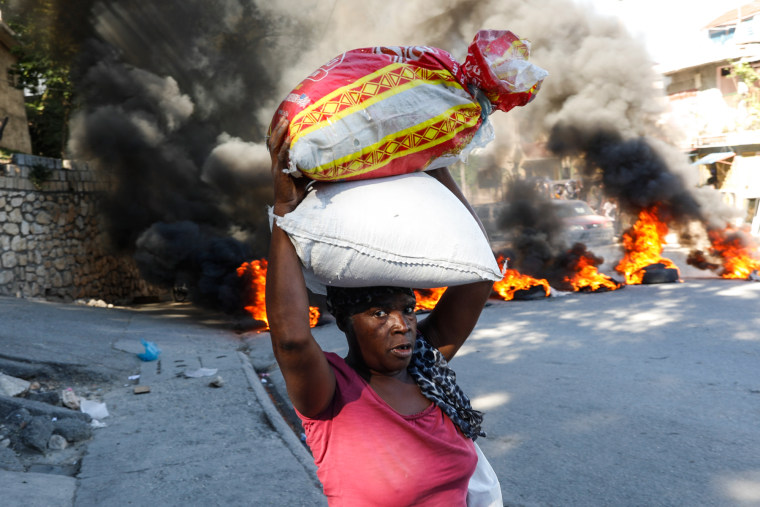
A long-simmering crisis over Haiti’s ability to govern itself, particularly after a series of natural disasters and an increasingly dire humanitarian emergency, has come to a head in the Caribbean nation, as its de facto president remains stranded in Puerto Rico and its people starve and live in fear of rampant violence.
The chaos engulfing the country has been bubbling for more than a year, only for it to spill over on the global stage on Monday night, as Haiti’s unpopular prime minister, Ariel Henry, agreed to resign once a transitional government is brokered by other Caribbean nations and parties, including the U.S.
But the very idea of a transitional government brokered not by Haitians but by outsiders is one of the main reasons Haiti, a nation of 11 million, is on the brink, according to humanitarian workers and residents who have called for Haitian-led solutions.
“What we’re seeing in Haiti has been building since the 2010 earthquake,” said Greg Beckett, an associate professor of anthropology at Western University in Canada.
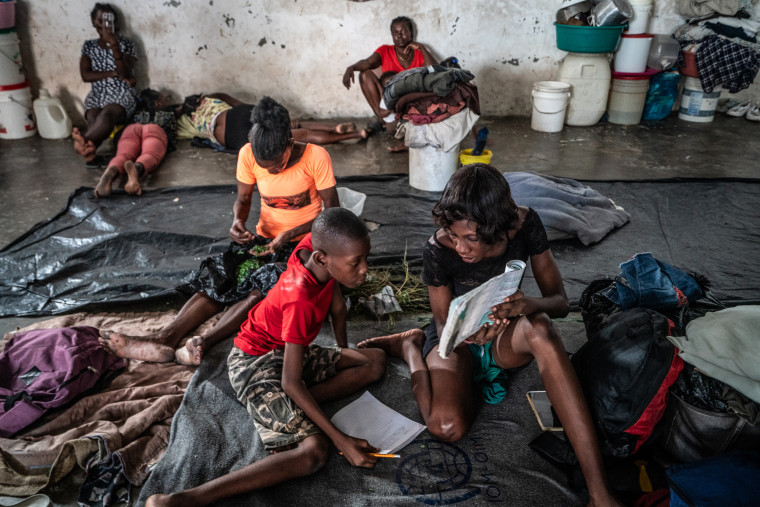
What is happening in Haiti and why?
In the power vacuum that followed the assassination of democratically elected President Jovenel Moïse in 2021, Henry, who was prime minister under Moïse, assumed power, with the support of several nations, including the U.S.
When Haiti failed to hold elections multiple times — Henry said it was due to logistical problems or violence — protests rang out against him. By the time Henry announced last year that elections would be postponed again, to 2025, armed groups that were already active in Port-au-Prince, the capital, dialed up the violence.
Even before Moïse’s assassination, these militias and armed groups existed alongside politicians who used them to do their bidding, including everything from intimidating the opposition to collecting votes . With the dwindling of the country’s elected officials, though, many of these rebel forces have engaged in excessively violent acts, and have taken control of at least 80% of the capital, according to a United Nations estimate.
Those groups, which include paramilitary and former police officers who pose as community leaders, have been responsible for the increase in killings, kidnappings and rapes since Moïse’s death, according to the Uppsala Conflict Data Program at Uppsala University in Sweden. According to a report from the U.N . released in January, more than 8,400 people were killed, injured or kidnapped in 2023, an increase of 122% increase from 2022.
“January and February have been the most violent months in the recent crisis, with thousands of people killed, or injured, or raped,” Beckett said.
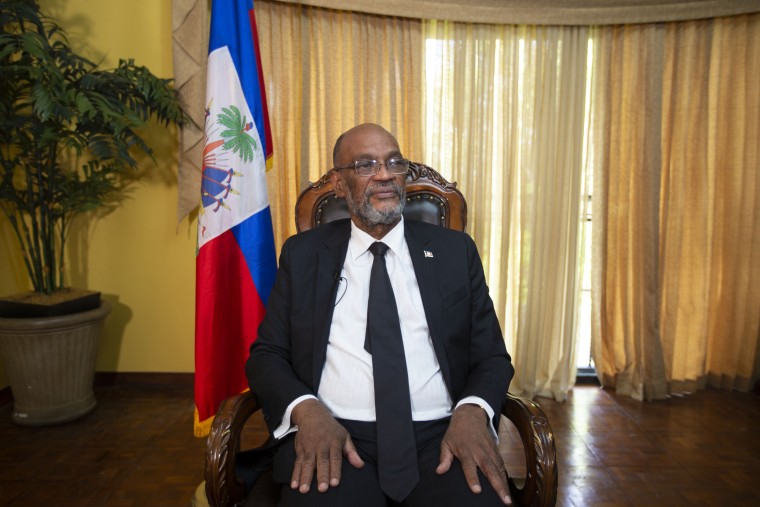
Armed groups who had been calling for Henry’s resignation have already attacked airports, police stations, sea ports, the Central Bank and the country’s national soccer stadium. The situation reached critical mass earlier this month when the country’s two main prisons were raided , leading to the escape of about 4,000 prisoners. The beleaguered government called a 72-hour state of emergency, including a night-time curfew — but its authority had evaporated by then.
Aside from human-made catastrophes, Haiti still has not fully recovered from the devastating earthquake in 2010 that killed about 220,000 people and left 1.5 million homeless, many of them living in poorly built and exposed housing. More earthquakes, hurricanes and floods have followed, exacerbating efforts to rebuild infrastructure and a sense of national unity.
Since the earthquake, “there have been groups in Haiti trying to control that reconstruction process and the funding, the billions of dollars coming into the country to rebuild it,” said Beckett, who specializes in the Caribbean, particularly Haiti.
Beckett said that control initially came from politicians and subsequently from armed groups supported by those politicians. Political “parties that controlled the government used the government for corruption to steal that money. We’re seeing the fallout from that.”
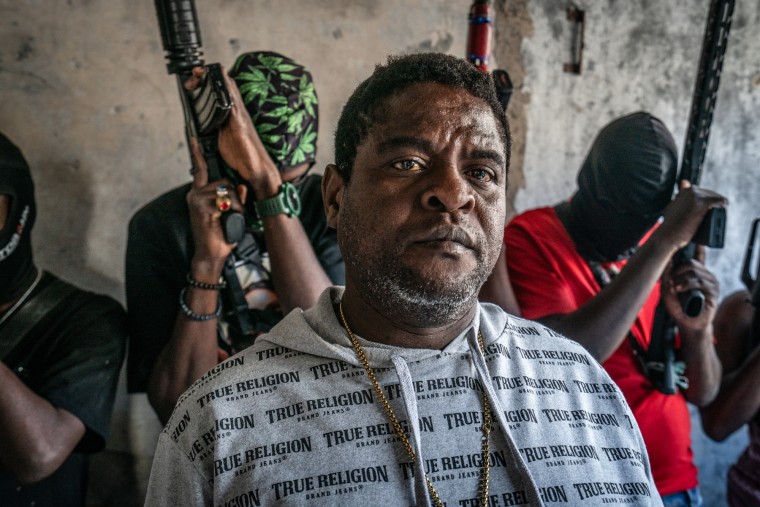
Many armed groups have formed in recent years claiming to be community groups carrying out essential work in underprivileged neighborhoods, but they have instead been accused of violence, even murder . One of the two main groups, G-9, is led by a former elite police officer, Jimmy Chérizier — also known as “Barbecue” — who has become the public face of the unrest and claimed credit for various attacks on public institutions. He has openly called for Henry to step down and called his campaign an “armed revolution.”
But caught in the crossfire are the residents of Haiti. In just one week, 15,000 people have been displaced from Port-au-Prince, according to a U.N. estimate. But people have been trying to flee the capital for well over a year, with one woman telling NBC News that she is currently hiding in a church with her three children and another family with eight children. The U.N. said about 160,000 people have left Port-au-Prince because of the swell of violence in the last several months.
Deep poverty and famine are also a serious danger. Gangs have cut off access to the country’s largest port, Autorité Portuaire Nationale, and food could soon become scarce.
Haiti's uncertain future
A new transitional government may dismay the Haitians and their supporters who call for Haitian-led solutions to the crisis.
But the creation of such a government would come after years of democratic disruption and the crumbling of Haiti’s political leadership. The country hasn’t held an election in eight years.
Haitian advocates and scholars like Jemima Pierre, a professor at the University of British Columbia, Vancouver, say foreign intervention, including from the U.S., is partially to blame for Haiti’s turmoil. The U.S. has routinely sent thousands of troops to Haiti , intervened in its government and supported unpopular leaders like Henry.
“What you have over the last 20 years is the consistent dismantling of the Haitian state,” Pierre said. “What intervention means for Haiti, what it has always meant, is death and destruction.”
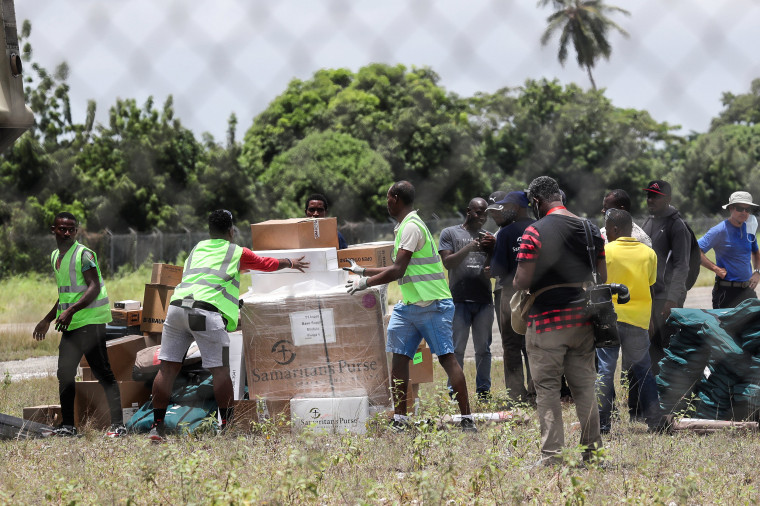
In fact, the country’s situation was so dire that Henry was forced to travel abroad in the hope of securing a U.N. peacekeeping deal. He went to Kenya, which agreed to send 1,000 troops to coordinate an East African and U.N.-backed alliance to help restore order in Haiti, but the plan is now on hold . Kenya agreed last October to send a U.N.-sanctioned security force to Haiti, but Kenya’s courts decided it was unconstitutional. The result has been Haiti fending for itself.
“A force like Kenya, they don’t speak Kreyòl, they don’t speak French,” Pierre said. “The Kenyan police are known for human rights abuses . So what does it tell us as Haitians that the only thing that you see that we deserve are not schools, not reparations for the cholera the U.N. brought , but more military with the mandate to use all kinds of force on our population? That is unacceptable.”
Henry was forced to announce his planned resignation from Puerto Rico, as threats of violence — and armed groups taking over the airports — have prevented him from returning to his country.
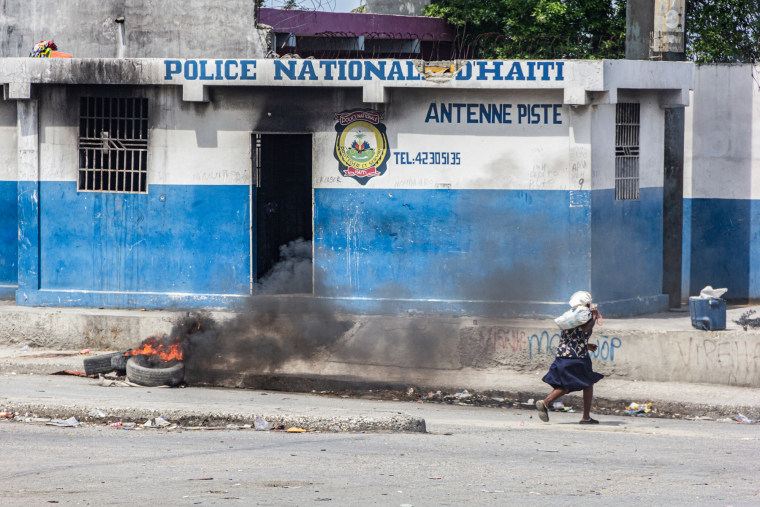
Now that Henry is to stand down, it is far from clear what the armed groups will do or demand next, aside from the right to govern.
“It’s the Haitian people who know what they’re going through. It’s the Haitian people who are going to take destiny into their own hands. Haitian people will choose who will govern them,” Chérizier said recently, according to The Associated Press .
Haitians and their supporters have put forth their own solutions over the years, holding that foreign intervention routinely ignores the voices and desires of Haitians.
In 2021, both Haitian and non-Haitian church leaders, women’s rights groups, lawyers, humanitarian workers, the Voodoo Sector and more created the Commission to Search for a Haitian Solution to the Crisis . The commission has proposed the “ Montana Accord ,” outlining a two-year interim government with oversight committees tasked with restoring order, eradicating corruption and establishing fair elections.
For more from NBC BLK, sign up for our weekly newsletter .
CORRECTION (March 15, 2024, 9:58 a.m. ET): An earlier version of this article misstated which university Jemima Pierre is affiliated with. She is a professor at the University of British Columbia, Vancouver, not the University of California, Los Angeles, (or Columbia University, as an earlier correction misstated).
Patrick Smith is a London-based editor and reporter for NBC News Digital.
Char Adams is a reporter for NBC BLK who writes about race.
UPDATE 1-Cuba Guarantees Food Rations in Bid to Defuse Tension After Protests
(Updates with visit from Chinese aid agency, donation of rice)
HAVANA, April 4 (Reuters) - Cuban President Miguel Diaz-Canel said on Thursday his communist-run government has secured supply of key subsidized food rations as he moved to defuse tensions just two weeks after protesters took to the streets over widespread shortages.
Diaz-Canel, who appeared on the mid-day TV newscast, said his government had undertaken an "enormous effort" to ensure the supply of food for the island`s population of 11 million.
"April and May are going to be months with better prospects," he said. "The Cuban government will continue to be committed to guaranteeing the people their levels of essential foods."
The message of renewed optimism follows a donation of 70 tonnes of rice this week from China, the first of six shipments totaling 400 tonnes that Beijing has agreed to deliver to Cuba.
Diaz-Canel received Luo Zhaohui, chairman of the China International Development Cooperation Agency, in Havana on Thursday, according to Cuban state-run media.
"You have extended a hand to Cuba at ... an extremely complex economic and social moment," the Cuban president told Luo.
Cuba has since Fidel Castro`s 1959 revolution provided its citizens with a monthly ration of basics such as rice, beans, sugar, cooking oil and coffee, but those deliveries have been scaled back over the years as an economic crisis has led to shortages and high prices.
The shortages, combined with oppressive 10-20 hour-long blackouts across the country, prompted several hundred protesters to take to the streets on March 17 in and around Santiago de Cuba, long considered a bastion of government support, as well as in nearby Bayamo and Matanzas.
The government moved quickly in recent days to defuse tensions, ramping up electricity generation almost immediately, largely eliminating the blackouts that have plagued much of the island for months.
Protests have since subsided.
Oscar Pérez, vice minister of foreign trade, said on Thursday`s state-run newscast that basic food items would also be guaranteed until June.
"We can confirm without a doubt that we have the availability of fundamental products such as rice until the month of June," he said.
He said the country was also working to guarantee the supply of both wheat flour for bread production and milk for children into June as well.
Cuba`s food ration program carries a monthly price tag of $230 million, according to the newscast.
Cuba is struggling to raise the cash it needs to underwrite its social programs, the result of tough U.S. sanctions, an inefficient state-run economy and a tourism industry struggling to recover following the coronavirus pandemic. (Reporting by Dave Sherwood and Nelson Acosta; Editing by Nick Macfie)

IMAGES
VIDEO
COMMENTS
Getting ready to travel to Cuba? Make sure you follow our steps to complete the D'Viajeros travel form before you travel. The form must be completed and shown at the airport before and after travelling to the island and requires passengers to input data such as their passport information, travel plans, and customs declarations.
Beginning in 2023, Cuba launched a new form for travelers to complete before arriving in the country, known as the D'Viajeros Travel form. Covering a range of topics including basic personal information and customs information, the D'Viajeros form is an important but relatively straightforward Cuba entry requirement that travelers will need to complete before arriving in Cuba.
For Latin American citizens, a valid passport is required during your stay in Cuba. You'll also need to obtain a tourist visa or tourist card for your trip. This can be processed at tourism agencies or airlines, which usually handle its issuance. The visa is generally issued for about 90 days and can then be extended.
Travel to Cuba for tourist activities remains prohibited by statute. However, the Department of Treasury's Office of Foreign Assets Control (OFAC) has issued general licenses for 12 categories of travel. Individuals who meet the regulatory conditions of the general license they seek to travel under do not need to apply for an additional ...
The online D'Viajeros form is mandatory for all persons coming to Cuba. The form can only be submitted within 48 hours of arrival to Cuba. Cuba Explorer explains the step-by-step process to complete the form with minimum frustration. Our instructions are tailored to US citizens and residents visiting Cuba as short-term guests and students.
Completing the D'Viajeros Form Page 1: Personal Information. On this page, you'll need to enter Full Name, Date of Birth, Gender, Country where the traveler was born, Passport Issuing Country, Passport Number, and Country of Permanent Residence. The fields that are MANDATORY will be ringed in RED.
In 2023, completion of the D'Viajeros Travel Form formally became a requirement for travelers entering Cuba. This straightforward online form can be completed up to 48 hours before your arrival in Cuba but is a requirement for travelers before arriving on the island.
Call us in Washington, D.C. at 1-888-407-4747 (toll-free in the United States and Canada) or 1-202-501-4444 (from all other countries) from 8:00 a.m. to 8:00 p.m., Eastern Standard Time, Monday through Friday (except U.S. federal holidays). See the State Department's travel website for the Worldwide Caution and Travel Advisories.
The 12 categories of travel licenses for US citizens. US law states that US citizens can only travel to Cuba on a 'general license' based on one of 12 different approved categories, which include family visits, educational and religious activities, public performances and exhibitions, and the vague sounding 'support for the Cuban people.'Licenses are self-qualifying (there's no long ...
Since 2021, Cuba has required filling out its landing form and health form online. You can access the form here: https://dviajeros.mitrans.gob.cu/inicioIn or...
Havana, Nov 19 (Prensa Latina) Cuba made available the D'Viajeros application for visitors arriving in the country as of next January 1 to fill out online the corresponding form with general ...
2. Fill out your passenger information in advance. Cuba uses an online form called D'Viajeros to gather traveler information, including immigration and health data, in advance of travel. Fill out the form digitally up to 72 hours before your arrival in Cuba. 3.
Step 9: Save and Print the PDF. You have completed the Cuba D'Viajeros travel form! Upon submitting your form you will see a PDF with a QR code and proof of completion. We highly recommend you print and save this document to show at customs when you arrive in Cuba. Full List of Cuba Entry Requirements.
Citizens of some Caribbean, Asian and European countries, including Russia, Montenegro, Serbia and Singapore, can travel visa-free to Cuba for up to 90 days with a passport that doesn't expire for at least six months. Passport holders from all other countries must purchase what is known officially as a Cuba Tourist Card, although it's often ...
By El Toque. HAVANA TIMES - The Cuban government will require, as of January 23, 2023, a digital customs declaration for travelers entering the country. The declaration is part of a more extensive digital form (which also contains immigration and health information) that will be mandatory for visitors, both Cubans and foreigners.st.
Step 1: Accessing the D'Viajeros form. Cuba's customs and immigration forms are on the D'Viajeros website. You will be able to fill in the form around 48-72 hours before arrival, you can't fill it out any sooner. Conversely, you should not wait until the last minute to fill out your form in case the website doesn't work or you have ...
Greatest Waterfalls in Cuba. Imagine finding yourself in Cuba, surrounded by an exuberant natural environment - where the vivacious green mountains stretch out into a splendid blue sky - while the fresh Caribbean seabreeze brightens your face. And on this tropical voyage, you discover a land of waterfalls on every corner of the island.
Purchasing the Tourist Card online ahead of time allows you to skip the lines at the airport (especially important if you have a connecting flight to Cuba). 2. Buy it From Your Airline. Some airlines assist travelers with the purchase of the Tourist Visa for travel to Cuba.
Welcome. Welcome to the Online Visa Application System of the Republic of Cuba. Please, find the country where you are to fill out your application. Country where you are. Algeria. Angola. Antigua and Barbuda. Argentina. Australia.
Passport validity requirements. To enter Cuba, your passport must have an 'expiry date' at least 6 months after the date you arrive and 3 months after your planned departure date. Check with ...
Cuba is an archipelago made up of the largest island of the Antilles called Cuba, Isla de la Juventud (formerly called Isle of Pines), and another 4,195 cays, islets and adjacent islands. It is located in the Caribbean Sea (or Caribbean Sea), near the coast of the United States and Mexico. Its limits are to the north with the Strait of Florida ...
Before you travel, check with your transportation company about passport requirements. Its rules on passport validity may be more stringent than the country's entry rules. Regular Canadian passport. Your passport must be valid for the expected duration of your stay in Cuba. Passport for official travel. Different entry rules may apply ...
Cuba is just 103 miles from the tip of Florida making it the ideal winter getaway for sun-seeking Americans. However, the U.S. imposed restrictions on travel to Cuba in 1963 and while the level of ...
Since January 1, 2022, travelers must complete the customs and health declaration form, this is done online and the website to visit is: https://www.dviajeros.mitrans.gob.cu . All travelers must complete this information online 48 hours before traveling to Cuba. Once the form is completed, you will receive a QR code by email.
1. Visit Parque de la Libertad. The historic center of Matanzas isn't as famous or as extensive as Old Havana, Trinidad, or Baracoa, but its charming streets and historic buildings make it well ...
Andy Turlington, owner and travel advisor at Wildest Dreams Bookings in North Carolina, recommends Cuba, which is a short flight from Florida -- only about 100 miles from Key West. "Cuba [has ...
It makes travel between the two countries — except for twelve categories of travelers — illegal. It forbids Americans from staying in all but two hotels in Havana (so much freedom!). Even Europeans traveling to Cuba will be denied ESTA visa waivers if they later travel to the United States. The blockade has been insanely burdensome to the ...
Yander Zamora/Photographer: Yander Zamora/Bloo. Cuba's request in February for United Nations food aid and recent reports of protests underscore the deepening humanitarian and economic crisis ...
Chaos has gutted Port-au-Prince and Haiti's government, a crisis brought on by decades of political disruption, a series of natural disasters and a power vacuum left by the president's assassination.
UPDATE 1-Cuba Guarantees Food Rations in Bid to Defuse Tension After Protests April 05th, 17PM April 05th, 17PM (Updates with visit from Chinese aid agency, donation of rice) HAVANA, April 4 ...